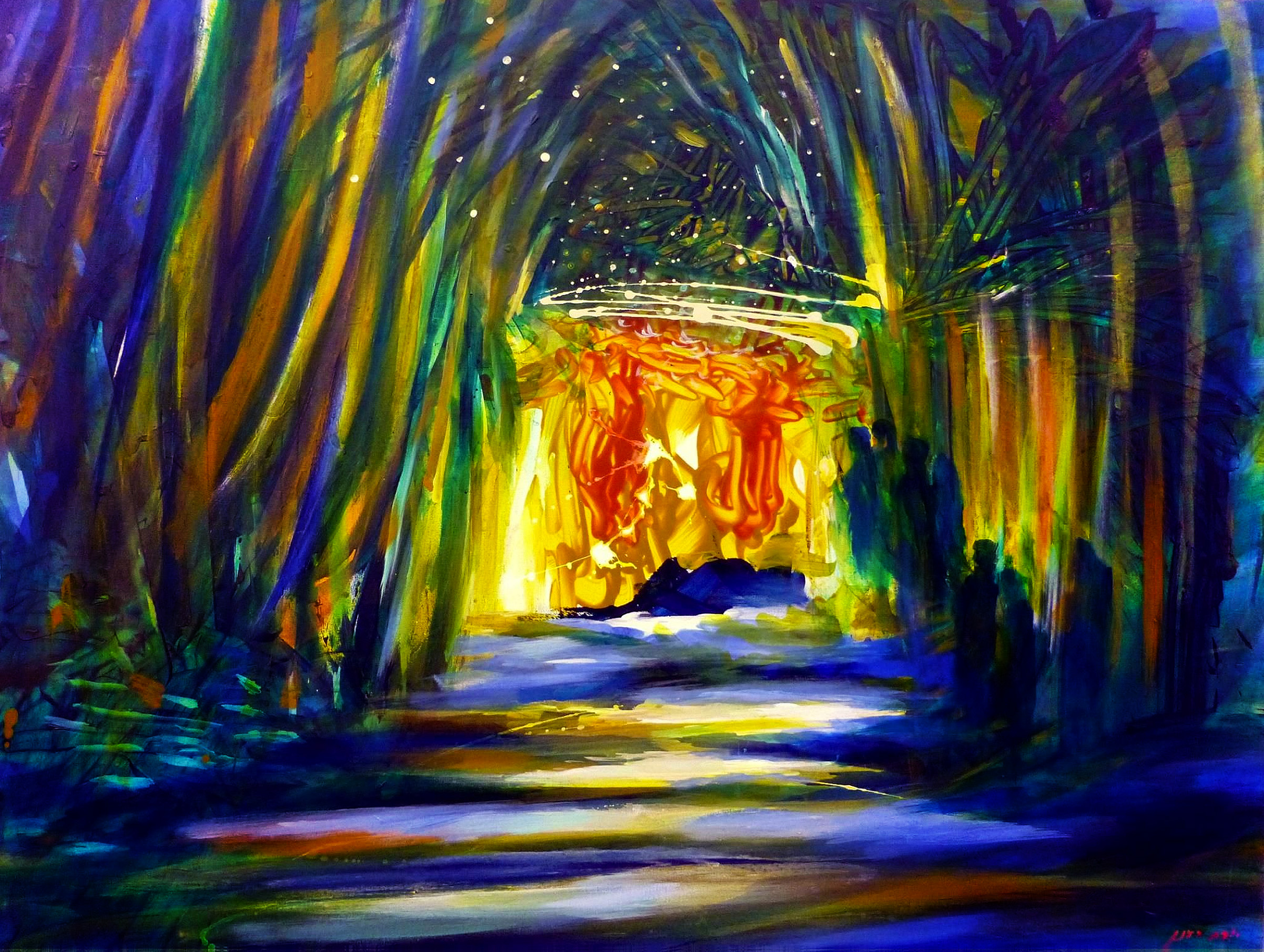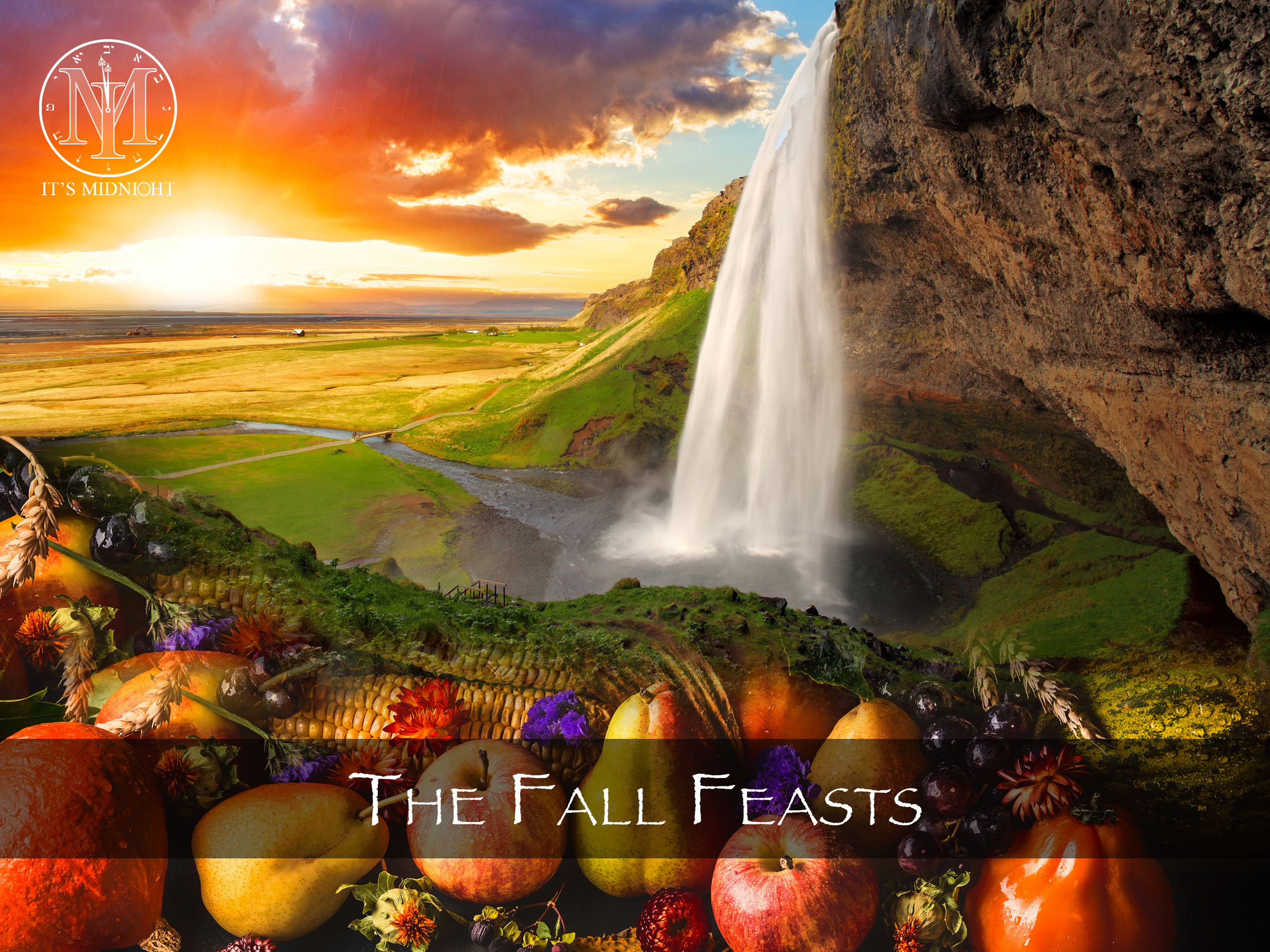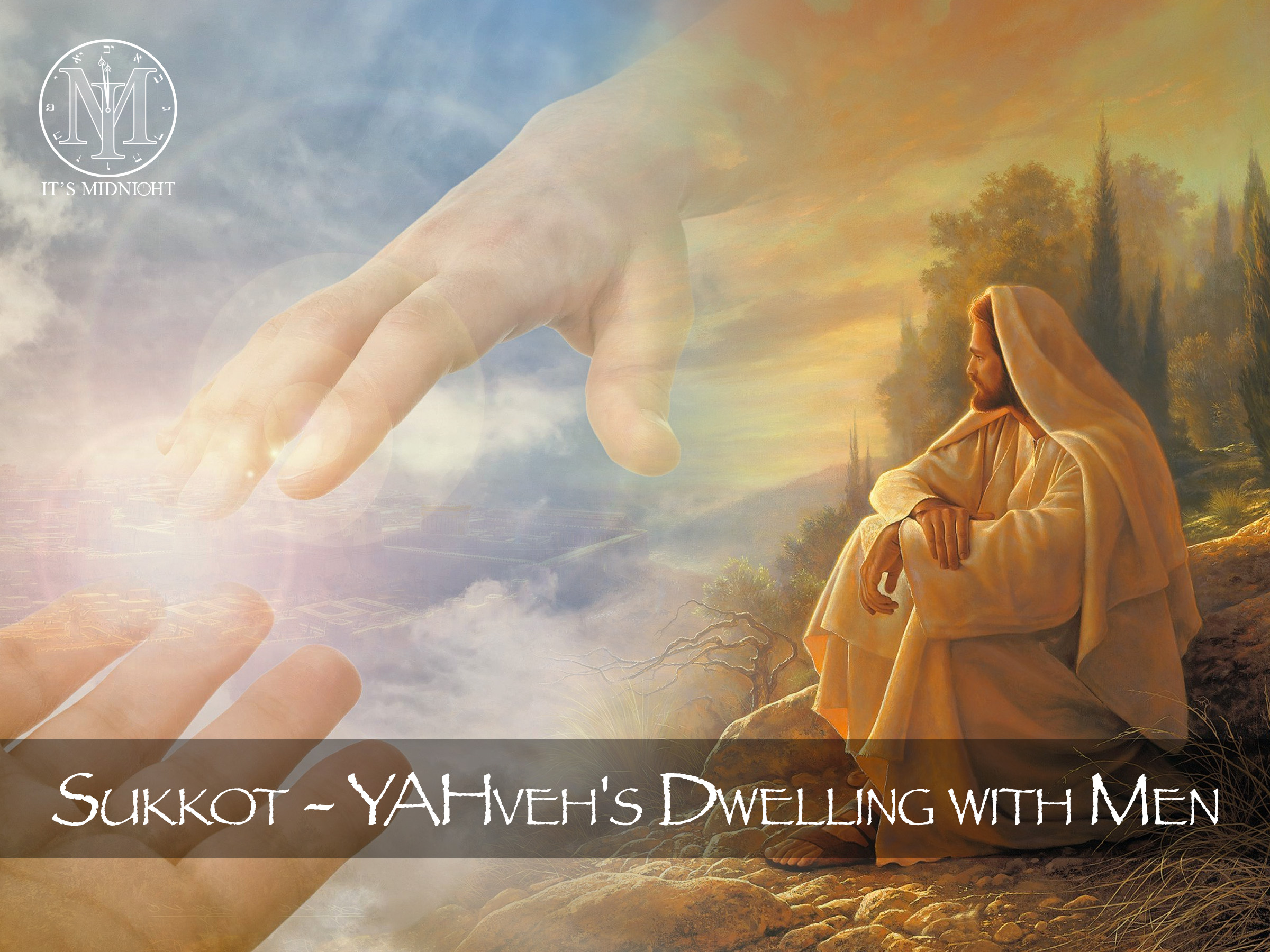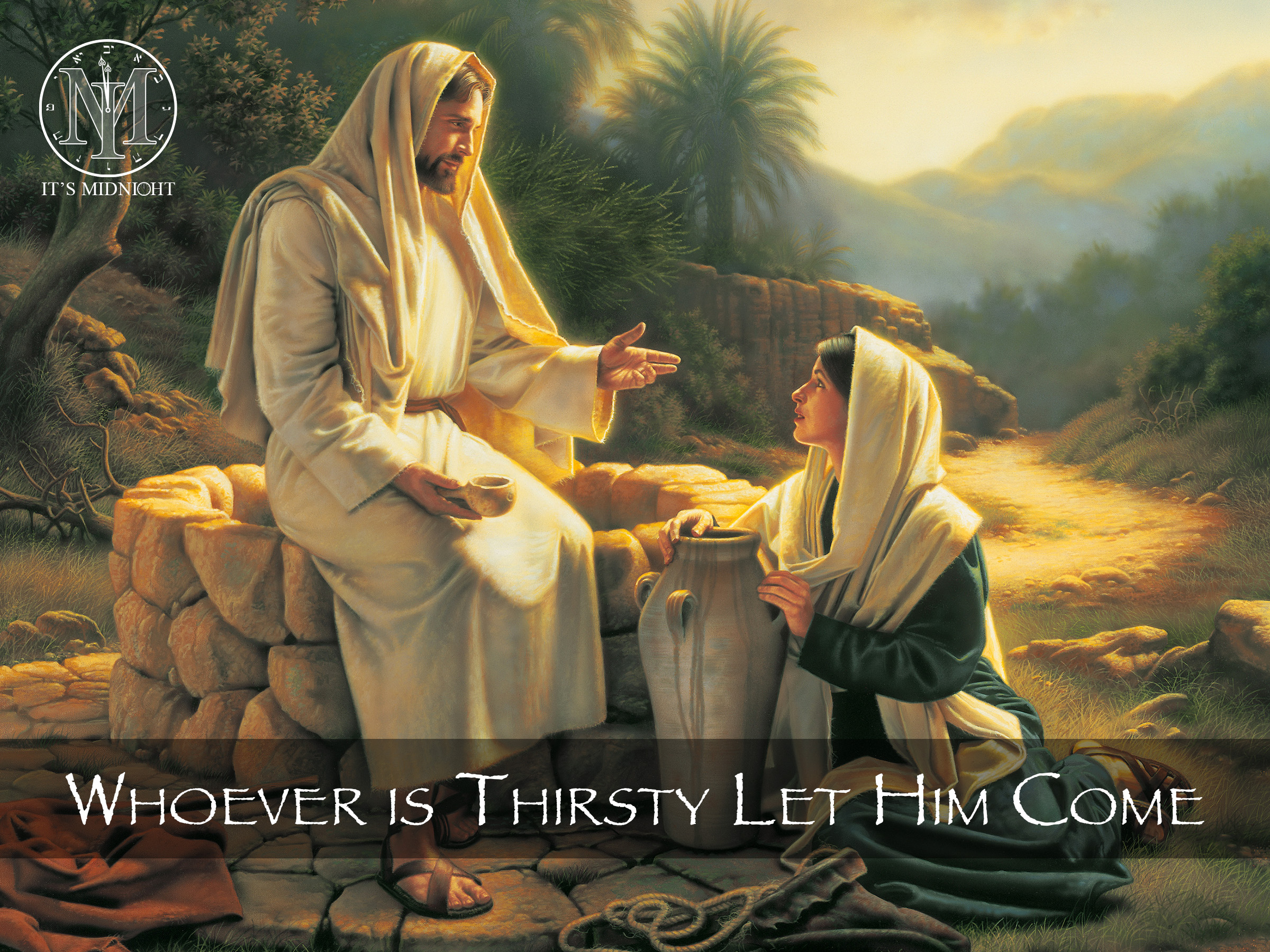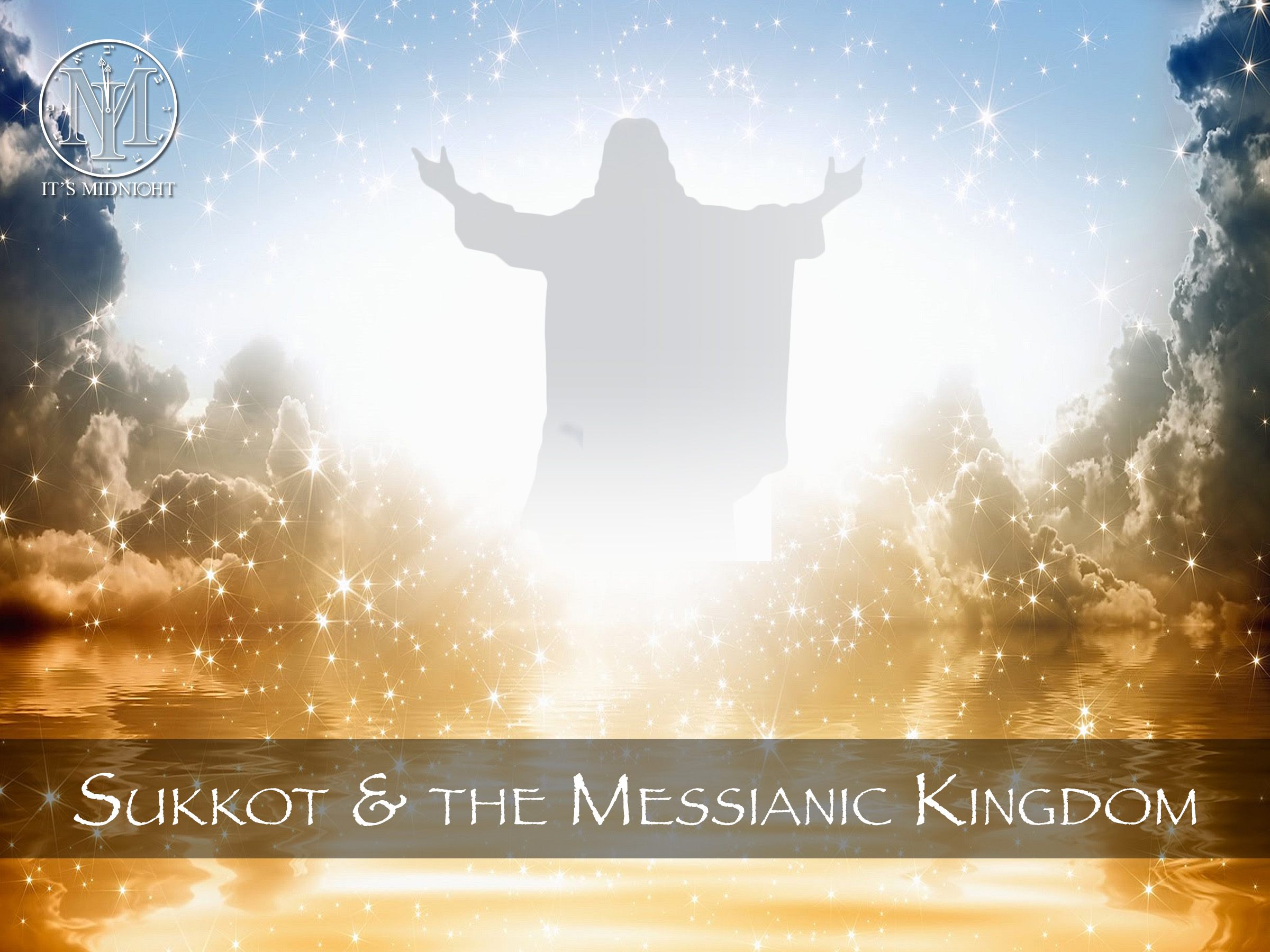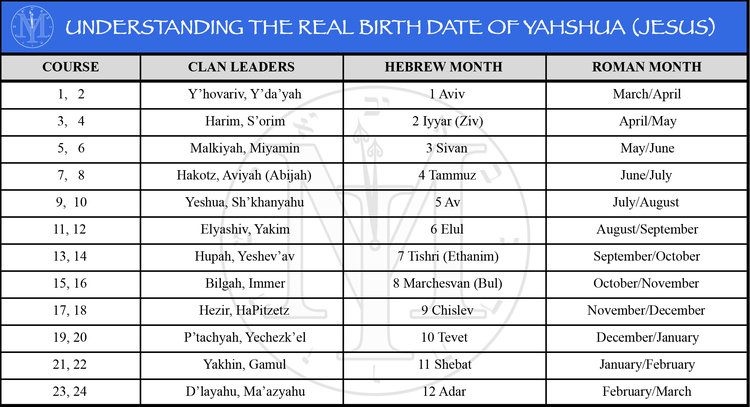Table of Contents
This year sukkot begins the evening of Monday October 6th and ends - the evening of Monday october 13th
This is a brief overview of the biblical holy day called the Feast of Tabernacles (Sukkot) it is also called the Feast of Ingathering because it was observed after all the crops had been harvested and gathered. It is the seventh and concluding holy day on the Almighty’s biblical calendar (Leviticus 23:33-44, 23:16). Tabernacles is a time of great rejoicing. It is the seventh feast, in the seventh month, and we are to “rejoice before Yahveh [the Lord] our God for seven days” (Leviticus 23:40). Seven is the Almighty God’s number and it refers to His perfection and completion. The Feast of Tabernacles is a prophetic preview, it points to the fullness of the God of Israel’s plan of salvation to tabernacle (dwell) among His blood-redeemed remnant, composed of both redeemed Jews and Gentiles. It points to the ultimate eternal rejoicing in the long awaited Messianic Kingdom with our God and Savior.
In the seventh month, Tishri, on the biblical calendar, the last three fall feasts occur. At the Feast of Trumpets there is the call for repentance, the Feast of Yom Kippur is redemption through repentant sins being covered and removed by the Lamb’s (Yahshua/Jesus) sacrificial blood. Only after those two feasts are fulfilled can one truly have great rejoicing in the Feast of Tabernacles that points to eternity spent with our Savior and King in His eternal righteous kingdom. All seven biblical feasts are a precise blueprint of our pilgrimage walk through repentance and redemption, leading to eternal rejoicing.
As stated above, Tabernacles is also called the “Feast of Ingathering” that prophetically points to the gathering in of the righteous harvest of those who have worked out their salvation through repentance with their sins covered in the Lamb’s blood (Matthew 13:30). The redeemed remnant are “looking for the blessed hope and the appearing of the glory of our great God and Savior, Messiah Yahshua [Christ Jesus]” (Titus 2:13).
Yahshua (Jesus) said, “It is fitting for us to fulfill all righteousness” in order for us to know the “abundant life” and experience true joy (Matthew 3:15, John 10:10). By the power of the indwelling Spirit we must uphold the righteous commandments of our God and Savior, wholeheartedly repenting for the many times in our thoughts, words, and deeds that we grieve Him by disobeying His Words. Those who “willfully go on sinning” and do not repent, continually dishonor and defame the sacrifice and blood of our Savior (Hebrews 20:26). Sadly, they will never know great rejoicing here on earth or in heaven. Those whose sins are not covered in the Lamb’s blood are not recorded in the book of life, and will not be at the eternal feast of great rejoicing, in the Kingdom. “If anyone's name was not found written in the book of life, he was thrown into the lake of fire” (Revelation 20:15). Yahshua (Jesus) said to His obedient disciples, above all else you are to “rejoice that your names are recorded in heaven" in the Lamb’s “book of life” (Luke 10:20, Revelation 20:12).
There is such an urgency in the Spirit, therefore, we must be “redeeming the time, because the days are evil.” “Night is coming, when no one can work” (Ephesians 5:16, John 9:4). The previous teachings on the feasts, concluding with this forthcoming series on Tabernacles, are prophetic and instructional. They are intended to motivate and accelerate us onward and upward in our spiritual walk through the narrow gate that leads to heaven of which our Savior said, “There are few who find it.” “Make every effort to enter through the narrow door, because many, I tell you, will try to enter and will not be able to” (Matthew 7:14, Luke 13:24). The great Apostle Paul says, “Follow my example, as I follow the example of Messiah”, “I press on toward the goal to win the prize for which God has called me heavenward in Messiah Yahshua [Christ Jesus]” (1 Corinthians 11:1, Philippians 3:14).
The importance and the understanding of this concluding biblical feast is pertinent and motivational for this generation in these final days on this earth as we know it. We are witnessing many signs that point to our coming King and Messiah and His glorious Kingdom. The Holy Spirit is compelling us to be fully prepared with understanding of biblical truth in order to have all of our hope and joy removed from this perishing world and focused on the eternal King, His kingdom, and the infinite joy of being with Him together forever. The fulfillment of Tabernacles will be the fulfillment of unceasing joy because our King and Savior who dwells within His redeemed on earth will dwell with us eternally in His kingdom of righteousness. Our great High Priest Yahshua (Jesus) is making intercession for all of us to be prepared as a Bride for her Bridegroom. Ultimately the Feast of Tabernacles prophetically points to the greatest feast of rejoicing, which is the “marriage supper of the Lamb” (Revelation 19:6-9). The utmost culmination and consummation of joy will be when Yahshua (Jesus) and His blood redeemed righteous bride are united together forever in His eternal holy presence and kingdom. Yahshua says, "If I go and prepare a place for you, I will come again and receive you to Myself, that where I am [dwelling], there you may be also” (John 14:3). Joy, joy, joy, the utmost fulfillment of Tabernacles, the Feast of Ingathering and rejoicing!
The fullness of time and the fulfillment of the Feast of Tabernacles are near. It is written, “Keep seeking the things above, where Messiah is, seated at the right hand of God. Set your mind on the things above, not on the things that are on earth” (Colossians 3:1-2). The Holy Spirit is leading His blood-redeemed remnant out of this world and its temporary worthless preoccupations and cheap thrills. He is directing our hearts and minds to be reprioritized and wholeheartedly focused on seeking and doing the will of God and having our hope and joy in Yahshua (Jesus) and His coming kingdom. It is written, “No eye has seen, no ear has heard, and no mind has imagined what God has prepared for those who love him” (1 Corinthians 2:9). It is the eternal Feast of Rejoicing, joy unspeakable filled with His glory!
For greater insight and deeper understanding of Sukkot
watch the following traditional Sukkot television broadcasts.
They will be as a light of revelation regarding the biblical holy day to enrich your spiritual walk following Messiah.
The ultimate tabernacle is when the Holy God came to dwell in the flesh in the person of His Son
These teachings on the Feast of Tabernacles are to prepare a remnant, through faith and loving obedience, to seek and do the will of Yahveh God, in order to be ready and eagerly waiting for our coming righteous King and His eternal kingdom, which is the ultimate prophetic fulfillment of the Feast of Tabernacles - Sukkot. Yahshua (Jesus) is wooing and drawing His beloved out of their sinful flesh nature and this dark world system. Those who are truly following the Savior are being led by the Spirit onto the “Highway of Holiness” that leads to the heavenly kingdom where our God and Savior dwells eternally in the midst of His righteous redeemed. (Isaiah 35:8)
Let’s begin with a brief history of the Almighty God coming to tabernacle with man on earth. The biblically recorded history of His dwelling with man began in the Garden of Eden, continued with His manifestation to Abraham, Isaac, and Jacob, and Jacob’s descendants, the twelve tribes of Israel – the Jewish nation. Mt Sinai is the first symbol in Scripture of the Most Holy Place where Yahveh’s throne – His presence and glory – miraculously dwelt. Later a movable tabernacle would become His throne room, and later still, He would inhabit the Holy of Holies of Solomon’s grand temple. The ultimate tabernacle is when the Holy God came to dwell in the flesh in the person of His Son, Yahshua (Jesus) the Jewish Messiah and He became – “Immanuel" (which means "God with us") (Matthew 1:23). It is written, “… The Word was God … became flesh, and dwelt [tabernacled] among us, and we saw His glory, glory as of the only begotten Son from the Father, full of grace and truth” (John 1:1,14).
Our Savior’s divinely given Hebrew name, was proclaimed by the angel Gabriel to His Jewish virgin mother, “you shall call His name Yahshua, for He will save His people from their sins" (Matthew 1:21). His name conveys the reality that Yahveh God came to dwell on earth in human form and was called Yahshua, which means: Yahveh is salvation (see John 1). His Hebrew name is often seen as Yeshua which simply means salvation. In the English Bibles, the name of our Savior is rendered Jesus. This is an English/Latin transliteration from the Greek Iesous, not the original Hebrew name of the Son. The name Iesous is a Greek word fashioned after the name “Joshua,” a corruption of the Hebrew Yahshua. The Greek name, Jesus, was not the name proclaimed to the Jewish virgin by the angel before Messiah’s birth. The Hebrew Messiah was named and called Yahshua, a very Hebrew name befitting the Jew of all Jews, the Messiah of Israel. During His sojourn on earth, the Savior never heard himself referred to as Jesus.
Our heavenly Father dwelled in Yahshua. We read in John 10:30, “I and My Father are one.” Yahshua (Jesus) died to make us one with Them by His Spirit dwelling in us as the Father dwelled in Him, so that together we will be one forever because of His indwelling presence. Yahshua explains this supernatural reality, “Believe me when I say that I am in the Father and the Father is in me … and you in Me, and I in you” (John 14:11, 20). HalleluYAH! HalleluYAH is the Hebrew universally embraced and proclaimed praise meaning: Hallelu –“praise be to” YAH –“YAHveh, the one true living God and Savior.”
Do you not know that you are a temple of God & that His Spirit dwells in you?"
The Almighty God, the God of Abraham, Isaac, and Jacob came in His divine order as written, “first for the Jew, then for the Gentile”, that both united together as “one new man”, through faith in His atoning blood, would “worship and serve Him in spirit and in truth” (Romans 2:10, Ephesians 2:15, John 4:24). Yahshua (Jesus) came to die as a sacrifice for our sins in order for His Holy Spirit, to dwell within the hearts of His faith filled redeemed, who through His atoning blood are spiritually “born again” (John 3:3). Through this supernatural divine process they are consecrated as “holy temples” who are filled with His Spirit of grace to walk in righteousness as He did upholding and obeying the commandments of His Father, the God of Abraham, Isaac, and Jacob (1 Corinthians 3:16, 1 John 2:6, Matthew 5:18). Apostle Paul (Shaul) exclaims to the redeemed remnant, “Do you not know that you are a temple of God and that the Spirit of God dwells in you?” (1 Corinthians 3:16)
The Holy One has always longed to share His infinite heart of love and grace with His beloved children. He created the first man Adam and woman Eve in His righteous image, that He as their Father, would dwell in their midst. There was grace, peace, and joy in the Garden of Eden because the Almighty’s presence dwelled there in continual union and communication with His creation. Sadly, this intimate relationship between the Creator and His children was broken when Satan entered through the serpent and successfully deceived and tempted Adam and Eve to disobey their Father’s one commandment. (Genesis 2:17)
Satan’s cunning enticement captivated Adam and Eve to eat of the forbidden fruit at which point sin and rebellion entered the human race. Because of disobedience and sin they spiritually died and were cast out of their Father’s eternal holy presence in the paradise atmosphere, of the Garden of Eden. Sin and rebellion always separates man from their holy God and Heavenly Father. It is written, “your iniquities have made a separation between you and your God, and your sins have hidden His face from you …” (Isaiah 59:2).
Noah and his family are a symbolic remnant of the righteous remnant at the end of the age that will be saved
Adam and Eve dwelt on earth apart from the presence of the Almighty Creator. Their offspring were all inheritors of their inbred sin nature. It is written, “Therefore, just as through one man sin entered into the world, and death through sin, and so death spread to all men, because all sinned” (Romans 5:12). The earth became increasingly filled with rampant evil until finally in the days of Noah, the Holy One would no longer endure with sinful mankind. It is recorded, “Yahveh the Lord saw that the wickedness of man was great on the earth, and that every intent of the thoughts of his heart was only evil continually. Yahveh was sorry that He had made man on the earth” therefore they were cast off the earth as Adam and Eve were cast out of Eden (Genesis 6:5-6).
Noah and his family are a symbolic remnant of the righteous remnant at the end of the age that will be saved. Our merciful Father says, “Say to the righteous that it will go well with them”, “For God has not destined us for wrath, but for obtaining salvation through our Lord Yahshua Messiah [Jesus Christ]…” (Isaiah 3:10, 1 Thessalonians 5:9). The Almighty Creator in holy indignation and divine judgment will destroy the surface of the earth and “everything that causes sin and all who do evil” as biblically proclaimed through many of the prophets throughout the Old and New Testaments (Isaiah 24, 2 Peter 3:10, Matthew 13:41). Yahshua (Jesus) spoke these prophetic words, "For the coming of the Son of Man will be just like the days of Noah. For as in those days before the flood they were eating and drinking, marrying and giving in marriage, until the day that Noah entered the ark, and they did not understand until the flood came and took them all away; so will the coming of the Son of Man be” (Matthew 24:37-39). In the days of Noah His divine retribution was through the flood. In the last days it will be through fiery judgment and ultimately the lake of burning fire for all unrepentant sinners. Only after Yahveh (the LORD) has purified the earth will He make a “new heaven and a new earth” (Revelation 21:1-3). Apostle Peter tells us, “according to His promise we are looking for new heavens and a new earth, in which righteousness dwells” and our God and Savior will tabernacle there with the righteous remnant forever (2 Peter 3:13).
Praise be to Yahveh God for coming to dwell in His Son Yahshua (Jesus) who died to pay the price of our sins in His own blood!
Due to Adam and Eve’s sin, “There is none righteous, no, not one; “All have sinned and fall short of the glory of God” (Romans 3:10,23). It is written, “The heart is more deceitful than all else and is desperately sick; who can understand it?” (Jeremiah 17:9) Only our Creator understands and knows the intents of our hearts and minds and apart from the mind and heart of the indwelling Spirit of our Savior, our human righteousness is nothing but disgusting filthy rags in His holy sight (Isaiah 64:6). Even the great Apostle Paul exclaimed, “O wretched man that I am! Who will deliver me from this [sinful] body that leads to death? I thank God—through [Yahshua Messiah] Jesus Christ our Lord! (Romans 7:24)
Praise be to Yahveh God for coming to dwell in His Son Yahshua (Jesus) who died to pay the price of our sins in His own blood! When He ascended He sent the gift of His Holy Spirit as a deposit within our redeemed lives that are divinely chosen to be living temples in which Yahshua (Jesus) lives in and through us upholding righteousness to His Father’s glory. “It is the Spirit who gives life [upholds righteousness]; the flesh profits nothing” (John 6:63). We have been redeemed to be holy temples in which He will dwell here on earth so that we can dwell in His kingdom where He tabernacles with His righteous children forever.
The New Testament apostles often referred to the biblical feasts. They were references to exhort the followers of Yahshua (Jesus) to seek, know, and do the will of God, at any cost, with great joy and thanksgiving for the sacrifice of our Lamb that we might have life in the eternal kingdom. Let’s move on to understanding more of the Feast of Tabernacles using Israel’s deliverance from Egypt and their wilderness journey as examples for the blood redeemed remnant and their pilgrimage on earth to the Promised Land, the Kingdom of Heaven. The Holy One of Israel with mighty signs, wondrous miracles, and judgments on Egypt delivered the children of Israel with triumphant shouts of victory. After they safely marched through the parted Red Sea they sang this song of rejoicing recorded and referred to as the Song of Moses and Israel.
“I will sing to Yahveh [the Lord], for He is highly exalted … Yahveh [the Lord] is my strength and song, And He has become my salvation; This is my God, and I will praise Him; … “Yahveh [the Lord] is a warrior; Yahveh is His name. “ “Your right hand, O Yahveh [Lord], is majestic in power, … shatters the enemy “Who is like You among the gods, O Yahveh [Lord]? … majestic in holiness, Awesome in praises, working wonders? … “In Your lovingkindness You have led the people whom You have redeemed; You have guided them to Your holy habitation. “The peoples [the Gentile nations] have heard, they tremble; “Terror and dread fall upon them; By the greatness of Your arm … Your people pass … “You will bring them and plant them in the mountain of Your inheritance, The place, O Yahveh, which You have made for Your dwelling, The sanctuary, O Lord, which Your hands have established. “Yahveh [the Lord] shall reign forever and ever.” (Exodus 15:1-3, 6,11,13-14,16-18)
You shall rejoice before Yahveh the Lord your God for seven days"
- Leviticus 23:40 -
The Feast of Sukkot – Tabernacles was the last great feast by which they were to remember all the preceding biblically required holy days beginning with Passover and culminating in the seventh and final feast, the Feast of great and eternal rejoicing. During the Feast of Tabernacles, Israel was to continually remember Yahveh God’s faithfulness from Egypt through the wilderness, being led by His Shekinah glory to the Promised Land. His instructions were, “Speak to the sons of Israel, saying, ‘On the fifteenth of this seventh month is the Feast of Booths [Tabernacles] … Now on the first day you shall take for yourselves the foliage of beautiful trees, palm branches and boughs of leafy trees and willows of the brook, and you shall rejoice before Yahveh the Lord your God for seven days (Leviticus 23:34,40). Live in temporary shelters for seven days: … so your descendants will know that I had the Israelites live in temporary shelters when I brought them out of Egypt’” (Leviticus 23:42-43).
The children of Israel lived in these quickly constructed huts called sukkah booths in the wilderness. This was to be an annual seven-day reminder of the Almighty’s mercy and power that delivered them out of bondage to Egypt and Pharaoh. The children of Israel were to remember Yahveh’s faithfulness. The foliage covering the temporary booths was to remind them that in the wilderness Yahveh, the great I AM “was their covering, protector, a “shield about them”, and the “glory in their midst” (Psalm 5:12, Zechariah 2:5). The palm branches and the other greenery was a reminder of His abiding presence as a cloud that shaded them from the scorching intense heat of the sun. The willows from the brooks were a reminder of His mercy to miraculously provide water from a rock. These temporary dwelling places for each household were made with three walls and intertwined branches. The roofs were thatched so that it allowed more shade than daylight during the day but sparsely placed in order to see the firmament at night. All this reminded the children of Israel that their God was dwelling with them providing “a pillar of cloud by day and a pillar of fire by night” (Exodus 13:22). He tabernacled [His presence dwelled] with them, His glory covered them, He went “before them, and He was their rear guard” (Isaiah 52:12). Through His mighty acts and displays of power they knew He was the One True Living God, who had miraculously delivered and “chosen [them] to be a people for His treasured possession, out of all the peoples who are on the face of the earth” (Deuteronomy 7:6).
They were to rejoice before Yahveh because of all that He had done throughout their wilderness journey
Israel was to rejoice for seven days - symbolic of the Holy One’s perfection and completion of His will throughout their whole lives. They were “not to come empty handed” but they were to present the offering of their lives to obediently serve, worship, and glorify Him throughout their pilgrimage on earth in preparation for the Promised Land (Deuteronomy 16:16). They were to rejoice before Yahveh because of all that He had done throughout their wilderness journey. He instituted the sacrificial blood covering of the lamb to spare them from the angel of death. He freed them from bondage, He destroyed their enemies, He brought them miraculously through the Red Sea, He gave them manna from heaven, water from the rock, and mercifully sent quail to satisfy their hunger for meat. He gave them everything they needed. He was Yahveh Yireh their Provider.
The faithful redeemed will continually praise and rejoice regardless of the trials they endure during their pilgrimage to the Promised Land
He is Yahveh the Holy One of Israel and He is Yahshua the Messiah of Israel, the Savior of both faith filled Jews and Gentiles. Those who are redeemed by the blood are to follow Him as the sacrificial Lamb of God and Good Shepherd Who is leading His little flock into the holy Promised Land where He will dwell with them forever. As the deliverer of Israel from Egypt and the deliverer of Jews and Gentiles from bondage from this world and Satan, we must faithfully obey and follow Him. The faithful redeemed will continually praise and rejoice regardless of the trials and hardships they suffer during their pilgrimage on earth in eager preparation for the Promised Land - the Most High God’s eternal dwelling place.
Apostle Paul uses Israel's example as warnings to us so that we do not make the same mistakes and reap similar devastating consequences
There were over a million Israelites, who the God of Israel delivered from Egyptian bondage. However, when we read Israel’s history, there were only two, Joshua and Caleb, of the original throngs, along with the children of those who died in the wilderness, who made it victoriously to the Promised Land (Numbers 14:30). Apostle Paul uses Israel’s example as warnings to us so that we do not make the same mistakes and reap similar devastating consequences. It is written, “For I do not want you to be unaware, brethren, that our fathers [referring to the children of Israel] were all under the cloud [the Almighty’s glorious presence] and all passed through the [Red] sea; and all were baptized into Moses [prefiguring Yahshua/Jesus] … in the sea; and all ate the same spiritual food [manna pointing to Yahshua “the living bread that came down from heaven” John 6:51]; and all drank the same spiritual drink, for they were drinking from a spiritual rock which followed them; and the rock was Messiah.
Nevertheless, with most of them God was not well pleased; for they were laid low in the wilderness. Now these things happened as examples for us, so that we would not crave evil things as they also craved. Do not be idolaters, as some of them were; as it is written, “The people sat down to eat and drink, and stood up to play [they quickly forgot the Holy One and His miracles and abandoned themselves to fleshy indulgences and returned to pagan partying rather than faithful rejoicing and worship].” Nor let us act immorally, as some of them did, and twenty-three thousand fell in one day. Nor let us try Yahveh the Lord, as some of them did, and were destroyed by the serpents. Nor grumble, as some of them did, and were destroyed by the destroyer. Now these things happened to them as an example, and they were written for our instruction, upon whom the ends of the ages have come. Therefore let him who thinks he stands take heed that he does not fall.” (1Corinthians 10:1-12)
The wilderness journey is difficult. “Beloved, do not be surprised at the fiery ordeal among you, which comes upon you for your testing, as though some strange thing were happening to you” for the brethren are all going through it in their pilgrimage away from this earth towards the Promised Land.
This wilderness journey is difficult. Yahshua (Jesus) said, “In the world you will have tribulation, but take courage; I have overcome the world" (John 16:33). We are also told, "Through many tribulations we must enter the kingdom of God" (Acts 14:22). “For to you it has been granted for Messiah’s (Christ's) sake, not only to believe in Him, but also to suffer for His sake” (Philippians 1:29). “Beloved, do not be surprised at the fiery ordeal among you, which comes upon you for your testing, as though some strange thing were happening to you” for the brethren are all going through it in their pilgrimage away from this earth towards the Promised Land (1 Peter 4:12).
So many people think that when they acknowledge their faith in Yahshua (Jesus) that they are guaranteed an insurance policy to heaven. Most were never taught the Savior’s many words that made it clear that there is a cost in following Him as true holy disciples. Because of the lack of understanding of our Messiah’s many admonitions regarding the true walk, so many believers live for the worldly blessings of the “here and now” rather than the eternal blessings of the “hereafter” in our God and Redeemer’s righteous kingdom. This is not scriptural; this is a distorted gospel message, which is setting people up for utmost disappointment and spiritual failure. Most grievous of all, Yahshua (Jesus) said, "Enter through the narrow gate; for the gate is wide and the way is broad that leads to destruction, and there are many who enter through it. "For the gate is small and the way is narrow that leads to life, and there are few who find it” (Matthew 7:13-14). They have not wholeheartedly and continually counted the cost to fulfill His requirements to be His disciples. Messiah said, “Whoever wants to be My disciple must deny themselves and take up their cross [crucifixion stake] and follow Me. For whoever desires to save his life will lose it, but whoever loses his life for My sake will find it.” (Matthew 16:24)
Our Savior gave important instruction regarding the fact that counting the cost was a prerequisite to faithfully and victoriously following Him to the end into His Kingdom (read Luke 14:28). Yahshua (Jesus) was a suffering Servant. Apostle John said, “the one who says he abides in Him ought himself to walk in the same manner as He walked” (1 John 2:6). We too, are called to be suffering servants and we are to “rejoice in Yahveh always” regardless of the trials and hardships (Philippians 4:4). It is written for our instruction, “[it is] through many tribulations we must enter the kingdom of God” (Acts 14:22). We are perfected into the image of our Savior through trials. It is written, “Although He was a Son, He learned obedience from the things which He suffered” (Hebrews 5:8). These trials and tribulations are going to make us strong in Yahveh God and in the power of His might, if we hold onto our faith in Yahshua (Jesus) who causes us to triumph and be “more than conquerors” (Romans 8:37). Those who truly walk by faith endure and persevere because they have “godliness with contentment which is great gain” (1Timothy 6:6). Those who waiver in their faith and “take lightly such a great salvation”(Hebrews 2:3) will inevitably end up discontent, self indulgent, grumblers, murmurers, and complainers as most of Israel became in their wilderness journey. Paul is sounding a loud warning that we must learn from the example of his Jewish ancestors, lest we too, fall under Yahveh’s displeasure and judgment in our spiritual walks and never make it to the Promised Land. Our Savior exclaimed, “many, I tell you, will seek to enter and will not be able” (Luke 13:24). Yahshua (Jesus) added, “He who endures to the end shall be saved” (Matthew 24:13).
All the Apostles were Jews who frequently used these biblically appointed days to teach us about our holy walk as pilgrims being led by the Spirit to the Promised Land
All the apostles were Jews who understood the biblical calendar, the appointed feast days, and their fulfillment in Messiah. They frequently used these biblically appointed days to teach us about our holy walk as pilgrims on earth being led by the Spirit to the Promised Land – the Kingdom of Heaven. Apostle Paul made it very clear through Israel’s example that we must be faith filled, obedient, joyful followers of Yahshua Who has delivered His people and is preparing the righteous remnant for the kingdom, the eternal fulfillment of the Feast of Tabernacles and Feast of Great Rejoicing. Yahveh had commanded His people, “you shall rejoice before Me for seven days” pointing to the completion of our pilgrimage on earth (Leviticus 23:40). Apostle Paul understood human nature. Israel’s example in the wilderness is an example of all our human nature. He was warning the believers, as it was for the Israelites, it will be difficult. There will be many heartaches, trials, and persecutions but Yahveh proclaimed that “you are to rejoice before Him” and Paul said, “Rejoice in Yahveh always again I say rejoice” (Leviticus 23:40, Philippians 4:4). He repeated this because it is a safeguard to obey the mandate to rejoice before Yahveh for those seven days that symbolize your walk on earth to the Promised Land.
This mandate to rejoice is not to be taken lightly. "The joy of Yahveh God is our strength" and is a safeguard for our faith
This mandate to rejoice is not to be taken lightly. It written, “the joy of Yahveh is our strength” and is a safeguard for our faith (Nehemiah 8:10). No other joy can strengthen our spirit in order to make it victoriously as spiritual pilgrims to the Promised Land. The distractions and preoccupations of what the flesh craves only strengthen the flesh that needs to be crucified and not indulged. Paul said, “the flesh profits nothing” it is a detriment and it will ultimately be our downfall as it was for the children of Israel in their pilgrimage journey because “flesh and blood cannot inherit the kingdom of God” (John 6:63, 1 Corinthians 15:50). As stated, ”the joy of Yahveh is our strength” and He takes us from strength to strength so that we will endure victoriously to the end over trials and tribulations in our pilgrimage journey (Nehemiah 8:10). Those who endure through faith and perseverance will be part of the joyful redeemed remnant of which it is written,
The ransomed of Yahveh the Lord will return and come with joyful shouting to Zion and everlasting joy will be on their heads.
- Isaiah 51:11 -
“So the ransomed of Yahveh (the Lord) will return and come with joyful shouting to Zion, and everlasting joy will be on their heads. They will obtain gladness and joy, and sorrow and sighing will flee away” (Isaiah 51:11). "Behold, the tabernacle of God is among men, and He will dwell among them, and they shall be His people, and God Himself will be among them, and He will wipe away every tear from their eyes; and there will no longer be any death; there will no longer be any mourning, or crying, or pain; the first things have passed away. And He who sits on the throne said, "Behold, I am making all things new … I will give to the one who thirsts from the spring of the water of life without cost … He who overcomes will inherit these things, and I will be his God and they will be My sons and daughters” (Revelation 21:3-7).
The last biblical Feast of Tabernacles/Sukkot, is referred to by many titles: the Feast of Booths, Ingathering of the Harvest, and the Great Rejoicing, (Leviticus 23:34, Deuteronomy 16:13, Exodus 23:16, Leviticus 23:37). Each one of these titles could be greatly expounded upon, however, we are going to focus on the last day of the last feast, the eighth day. This prophetically points to the new beginning in the eternal kingdom where the glorious harvest of the holy redeemed has been gathered into the great assembly of the righteous. This is the faithful obedient remnant who have “overcome victoriously through the blood of the Lamb, the word of their testimony, and did not love their lives so much as to shrink from death” (Revelation 12:11). They are the ones, of whom our Savior said, “[those] who endure [through courageous faith and self denial] to the end, will be saved” (Matthew 24:13). The harvest of the righteous remnant have faithfully obeyed their Savior, “sharing in His sufferings” so that they would “know Him in His resurrection power” and share eternal rejoicing with their beloved Messiah in the kingdom of heaven (see Philippians 3:10).
According to our Savior’s well known parable, these are the wise watchful virgins, filled with His Spirit, prepared and waiting for the Bridegroom. Yahshua (Jesus) spoke about the bride and the bridegroom in this parable. There were ten virgins all of them professed to know and love the their bridegroom. Our Savior was addressing all professing believers (male and female), magnifying the reality that He redeemed them to be His spiritual bride. He made an eternally vital distinction between “the wise and the foolish” ones. “The foolish virgins” were not prepared; they were too preoccupied with this passing world and its deceptive pleasures, rather than being focused on the eternal joy of being united with their beloved Savior in His kingdom. Consequently, we read, the door to heaven was closed and He said to the unprepared virgins, 'Truly … I do not know you' (see Matthew 25:1-12). They were not wise, they were disqualified and for them it will be eternal sorrow instead of eternal rejoicing. Those who have their focus on the eternal joys in the heavenly kingdom with their Beloved, are the righteous harvest who qualifies as the bride of Messiah that enters the eighth day of eternal rejoicing with her Bridegroom, in bonds of love with Him forever.
I betrothed you to one husband [Yahshua (Jesus)], so that to Messiah I might present you as a pure virgin [undefiled by sin and the flesh’s desires for the world]” prepared for Him as a righteous bride
- 2 Corinthians 11:2 -
When one, by faith, believes in Yahshua (Jesus), they are “born again” as “new spiritual creations”, this is the beginning of a marriage covenant (John 3:3, 2 Corinthians 5:17). It is verified and clarified in the Scripture that as a new “born again” “spiritual creation”, “there is neither Jew nor Gentile, … male nor female; for you are all one in Messiah Yahshua (Jesus)” (Galatians 3:28). Our Bridegroom is Spirit and we are redeemed out of the flesh and the world to grow up as a mature spiritual bride who is holy, blameless, and pleasing in her Bridegroom Redeemer’s sight. Apostle Paul in his ministry to the Gentiles was explaining to them the marriage covenant between Messiah and His redeemed. He said, “I am jealous for you with a godly jealousy; for I betrothed you to one husband [Yahshua (Jesus)], so that to Messiah I might present you as a pure virgin [undefiled by sin and the flesh’s desires for the world]” (2 Corinthians 11:2). The Holy Spirit is the “Helper”, dwelling within each of the redeemed, preparing us as a bride for her holy Bridegroom (John 14:26, Revelation 19:7).
The infinite love of Yahshua (Jesus) for His bride began before the foundation of the earth. As it is written, “He chose us in Him before the foundation of the world, that we would be holy and blameless before Him” (Ephesians 1:4). Messiah’s passion compelled Him to come to earth in the flesh, to die and purchase His bride to spend eternity with Him in His Father’s glorious kingdom. He was born the “Son of God”, the “Son of David”, the “Son of Man” (1 John 5:20, Luke 18:38, 9:58). Our Savior’s true birthday was most likely on the Feast of Tabernacles, fulfilling what is written, “the Word became flesh, and dwelt [tabernacled] among us, and we saw His glory, … as the only begotten from the Father” (John 1:14). “Immanuel - God with us”, was born to die in order to purchase a righteous remnant of Jewish and Gentile people, who through faith in His sacrificial atoning blood, and obedience to His commandments and word, would become purified and sanctified to be His eternal holy bride (Matthew 1:23).
This is the greatest love story that ever was and will ever be, filling all of heaven and the entire universe with eternal shouts of halleluYAH!
The Almighty Creator, the Holy One of Israel’s Son, Yahshua the Messiah, has what He longed and died for. He loved so passionately that He sacrificed His own blood to purchase His holy bride. May we, the redeemed, continually look upward and forward to the fulfillment of the eighth day of the Feast of Tabernacles. This is the manifestation of the new beginning in the kingdom, the utmost eternal rejoicing, the wedding supper of the Lamb! (Revelation 19:7-9)
The righteous remnant redeemed from “every tribe” of Israel, and “every nation”, male and female, who wholeheartedly love and long for Him, are consumed with preparing as a holy bride for eternity with the beloved Bridegroom (Revelation 7:9). This ever growing love compels them to leave everyone and everything as secondary for their first love, in order to prepare, for that eighth day of “unimaginable greatest rejoicing”, the new beginning in eternity, dwelling with Yahshua (Jesus) in His Father’s kingdom. It is written, “Eye has not seen, nor ear heard, nor have entered into the heart of man the things which God has prepared for those who love Him” (Matthew 19:29, 1 Corinthians 2:29).
Let us rejoice and be glad and give the glory to Him, for the marriage of the Lamb has come and His bride has made herself ready.
- Revelation 19:7 -
Apostle John was given the revelation of the fullness of all the feasts, depicting our salvation through Yahshua (Jesus), and its culmination with the greatest joy that ever was, and yet, will always be for the bride and the Bridegroom. John said, “Then I heard [in heaven] something like the voice of a great multitude and like the sound of many waters and like the sound of mighty peals of thunder, saying, “Halleluyah! For Yahveh our God, the Almighty, reigns. Let us rejoice and be glad and give the glory to Him, for the marriage of the Lamb has come and His bride has made herself ready. It was given to her to clothe herself in fine linen, bright and clean; for the fine linen is the righteous acts of the saints. Then he said to me, “Write, ‘Blessed are those who are invited to the marriage supper of the Lamb.’” And he said to me, “These are true words of God” (Revelation 19:6-9).
“Then I saw a new heaven and a new earth; for the first heaven and the first earth passed away, … And I saw the holy city, new Jerusalem, coming down out of heaven from God, made ready as a bride adorned for her husband. And I heard a loud voice from the throne, saying, “Behold, the tabernacle of Yahveh God is among men, and He will dwell among them, and they shall be His people, and God Himself will be among them” (Revelation 21:1-3).
THE JEWISH MESSIAH’S BIRTH ACCORDING TO THE BIBLICAL CALENDAR
There is an incomparable gift of knowing Messiah’s birth on its true day according to the Holy One’s prophetic plan and biblical calendar. It is possible, by looking at the Holy Scriptures more carefully, that one can ascertain the actual season of the Savior’s birth. As Luke begins his Gospel account he explains the birth of John the Baptist. John’s parents, Zachariah and Elizabeth, were of the tribe of Levi, the ordained priestly tribe (Leviticus 3:12,41,45). Zachariah was a priest, and he served at a particular time of the year. King David divided the levitical priests into twenty four groups (I Chronicles 23:4-6), with each group serving two consecutive Sabbaths so that continuous service in the Holy One’s Temple in Jerusalem would be maintained throughout the year. It is written, Zachariah was of the “division of Abijah,” this division (also called Course as seen in the chart) served as the 8th group (Luke 1:5, I Chronicles 24:10). Before we can determine the time of year Zachariah’s division (Abijah) was in service, we need to understand the Almighty’s Biblical calendar. During Israel’s miraculous Exodus, because of the lamb’s blood sparing them from the angel of death, the wonder working God of Israel said to His people, this month is to be “the beginning of months for you; it is to be the first month of the year to you.” (Exodus 12:1,2). He gave this command to Moses and Aaron during the Passover season, springtime, the month of Aviv - (March/April) (Exodus 13:4). Since Zachariah belonged to the eighth division (course), he would have served on both the 15th and 16th Sabbaths of the year, in the fourth Biblical month of Tammuz - (June/July). The biblical calendar is based on the moon/lunar calendar, unlike the world’s Gregorian calendar which is based on the sun.
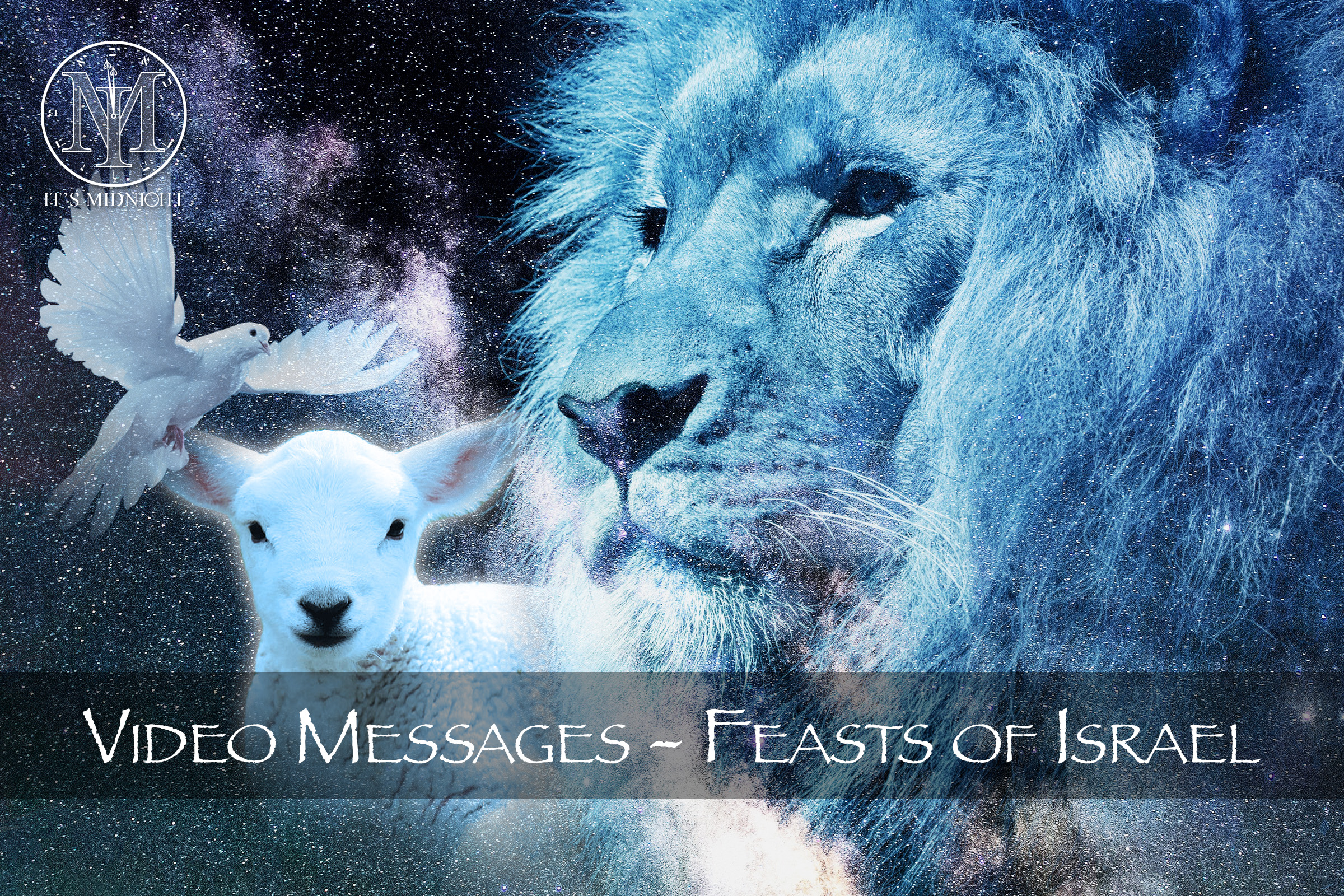
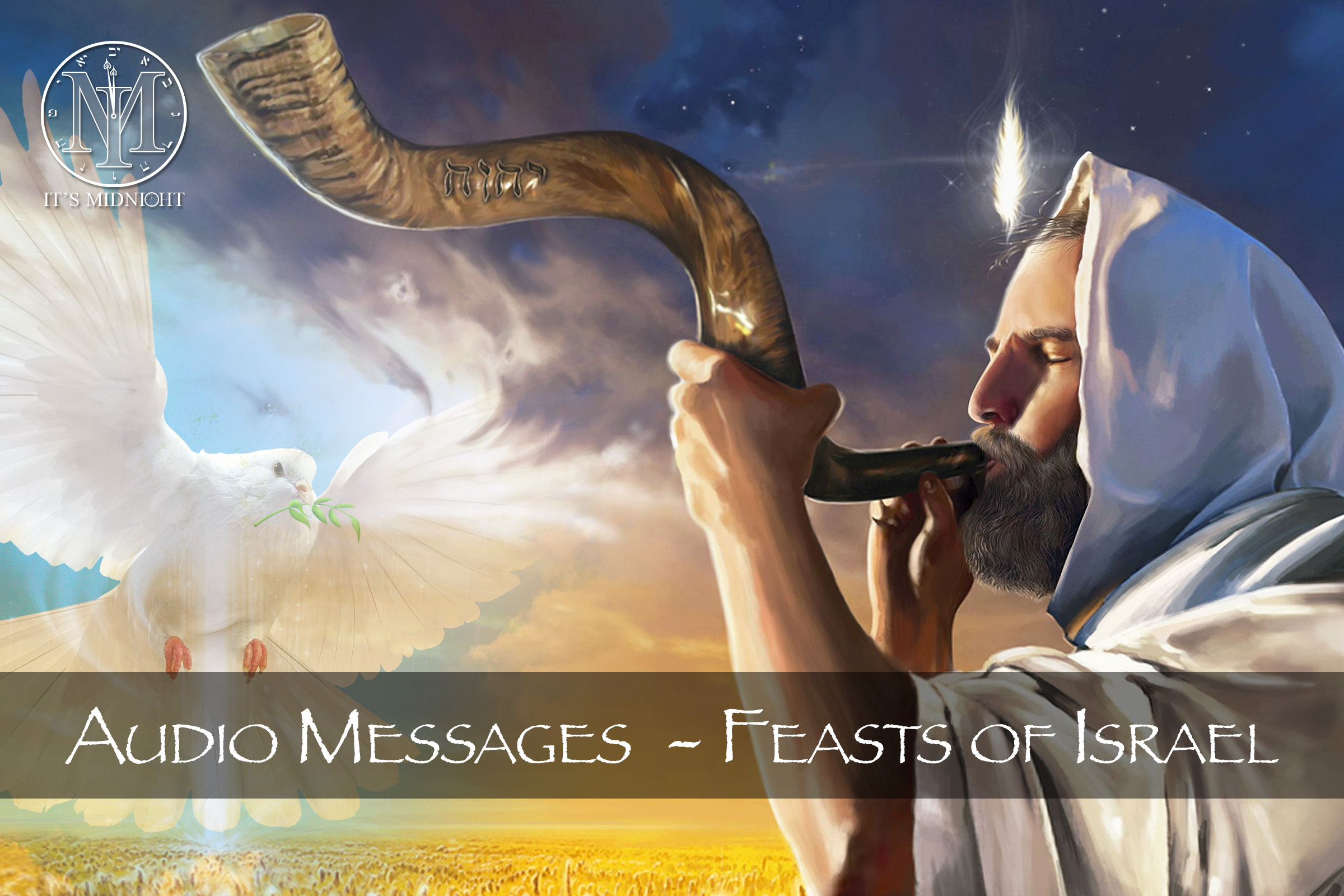
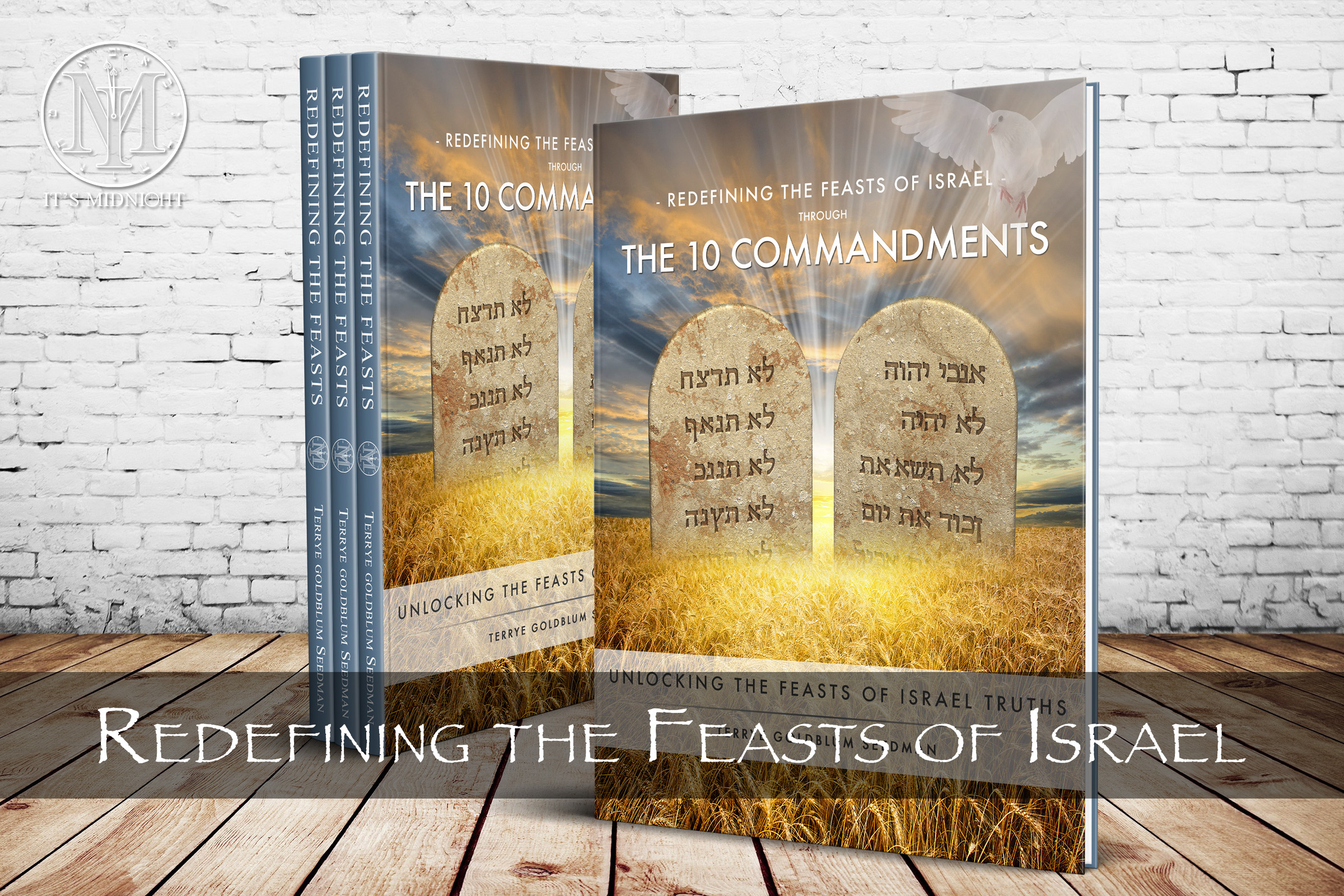
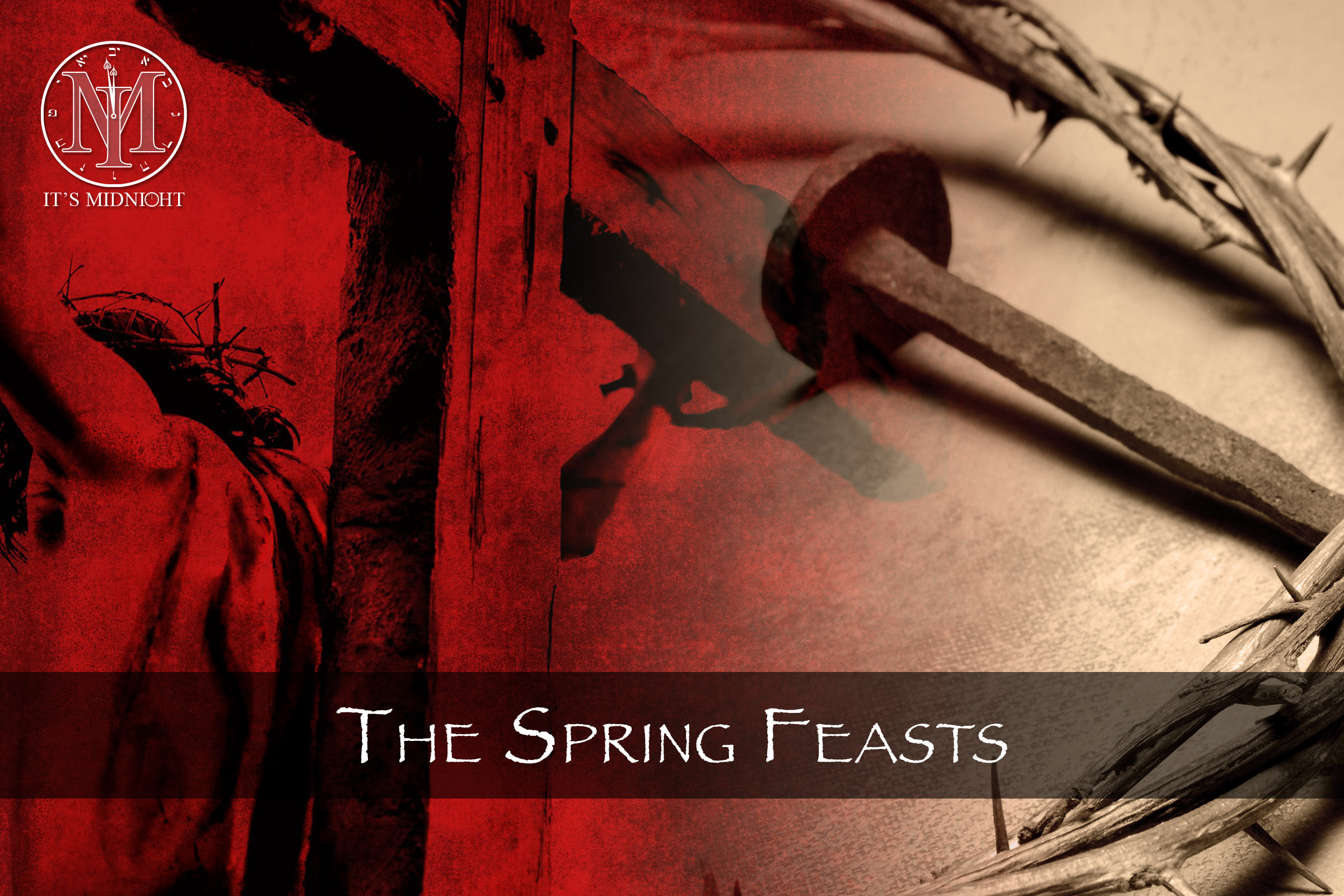
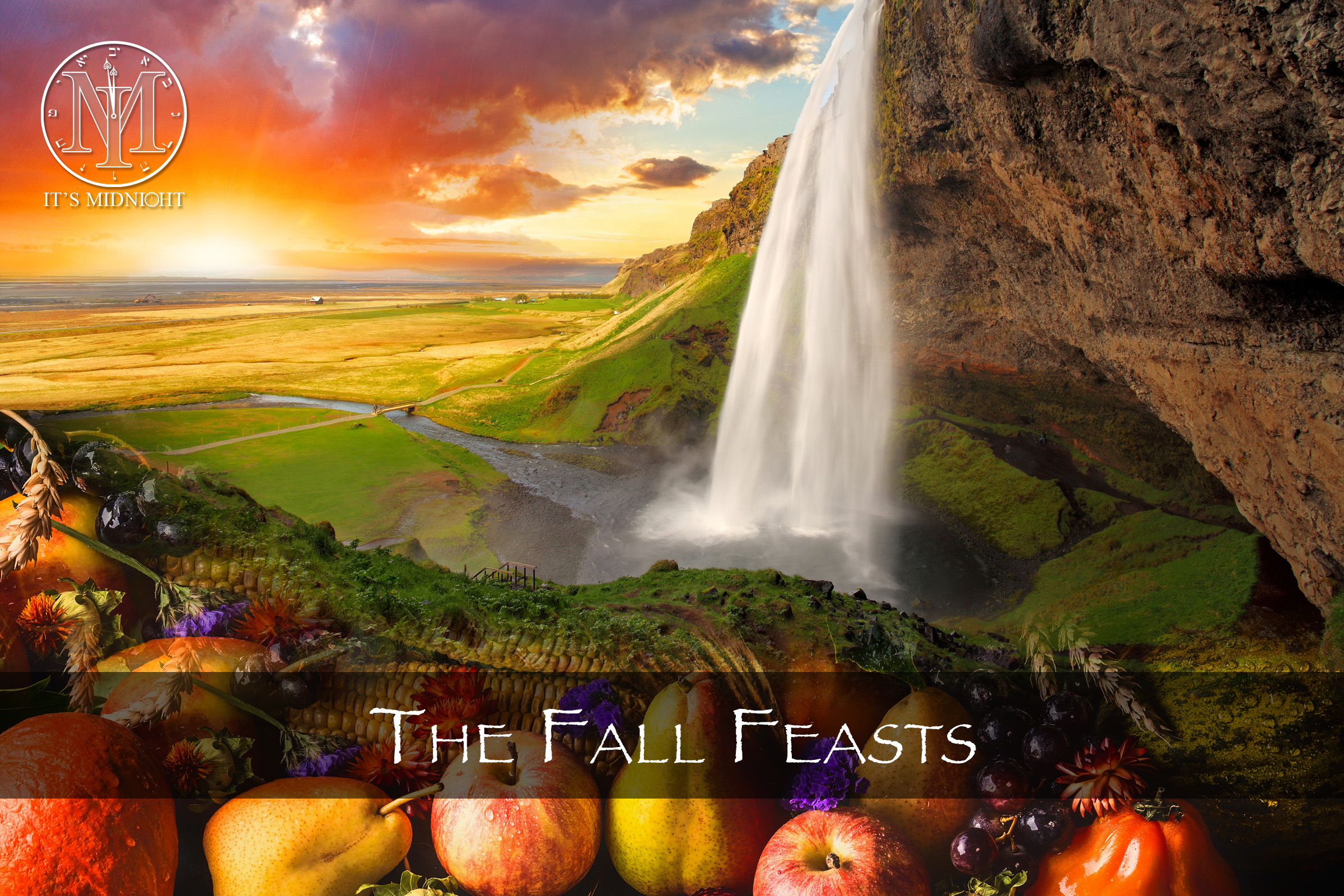
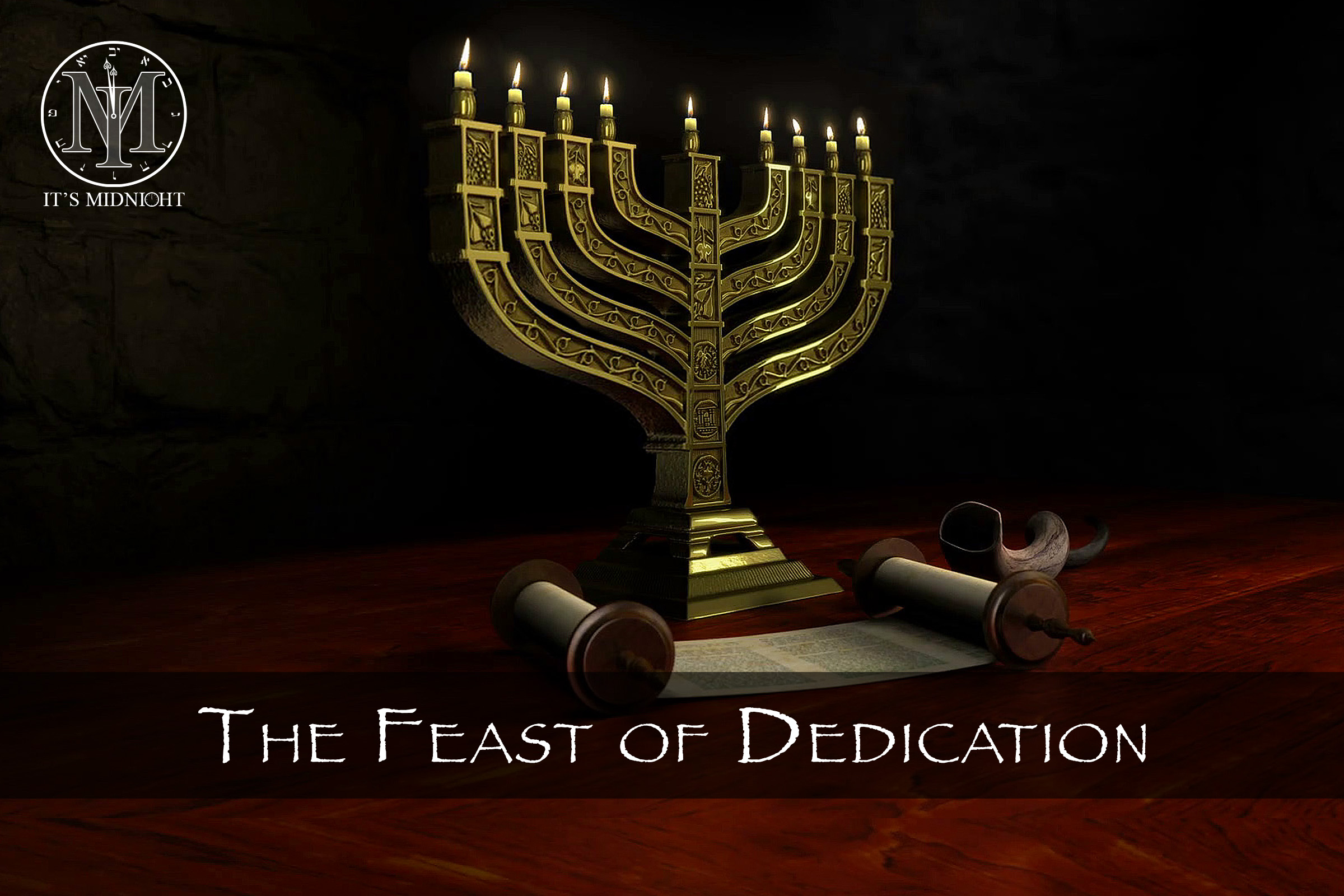
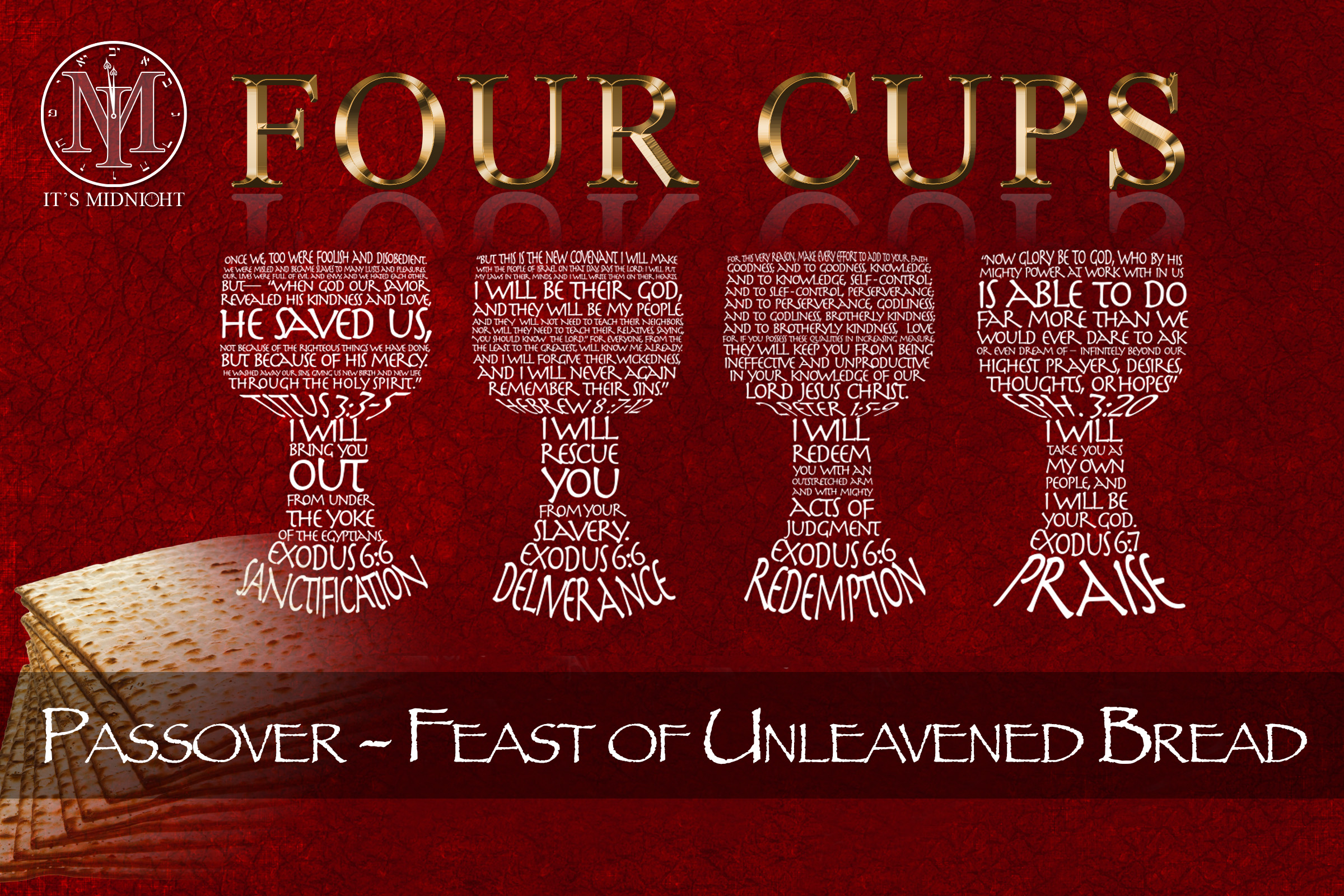
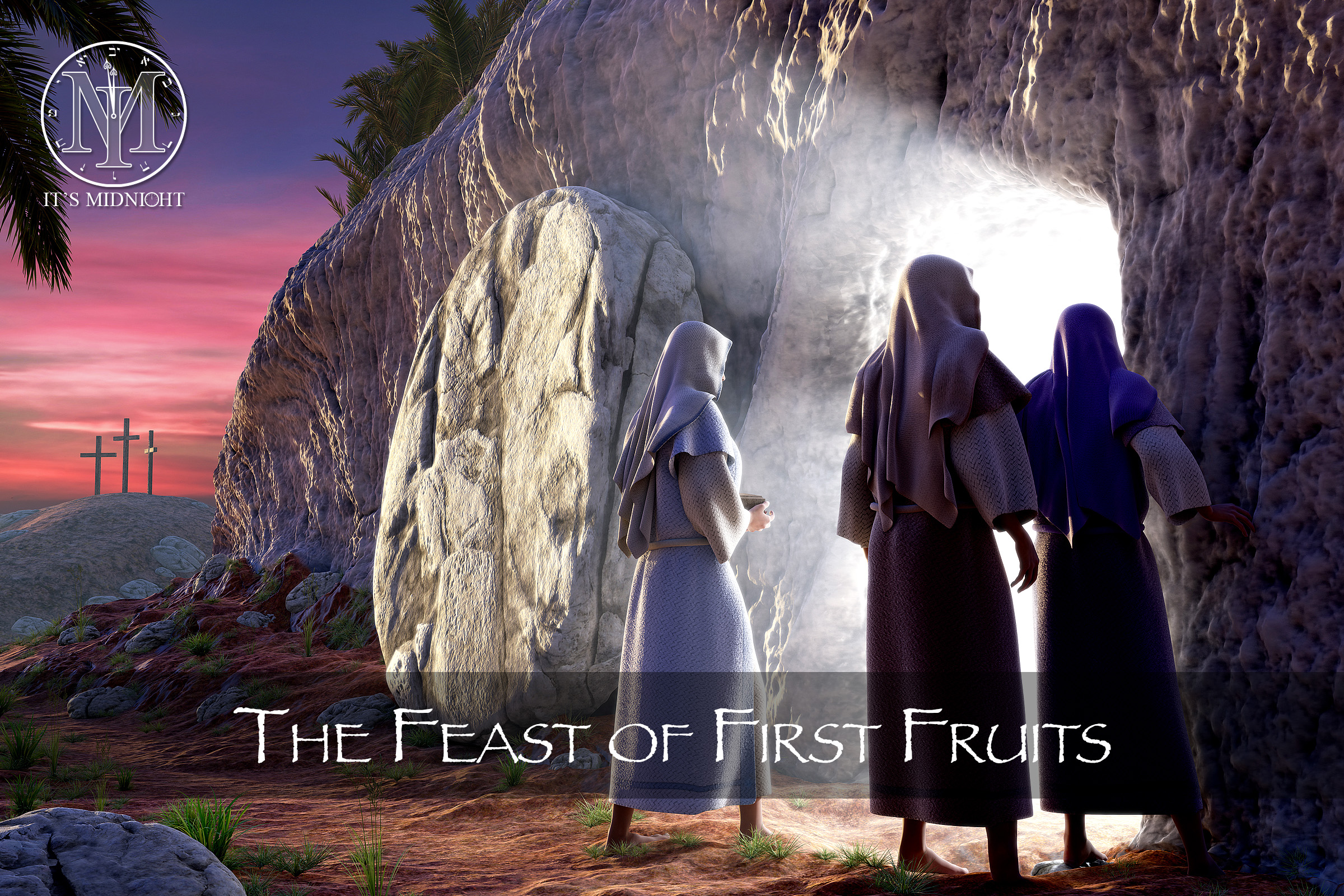
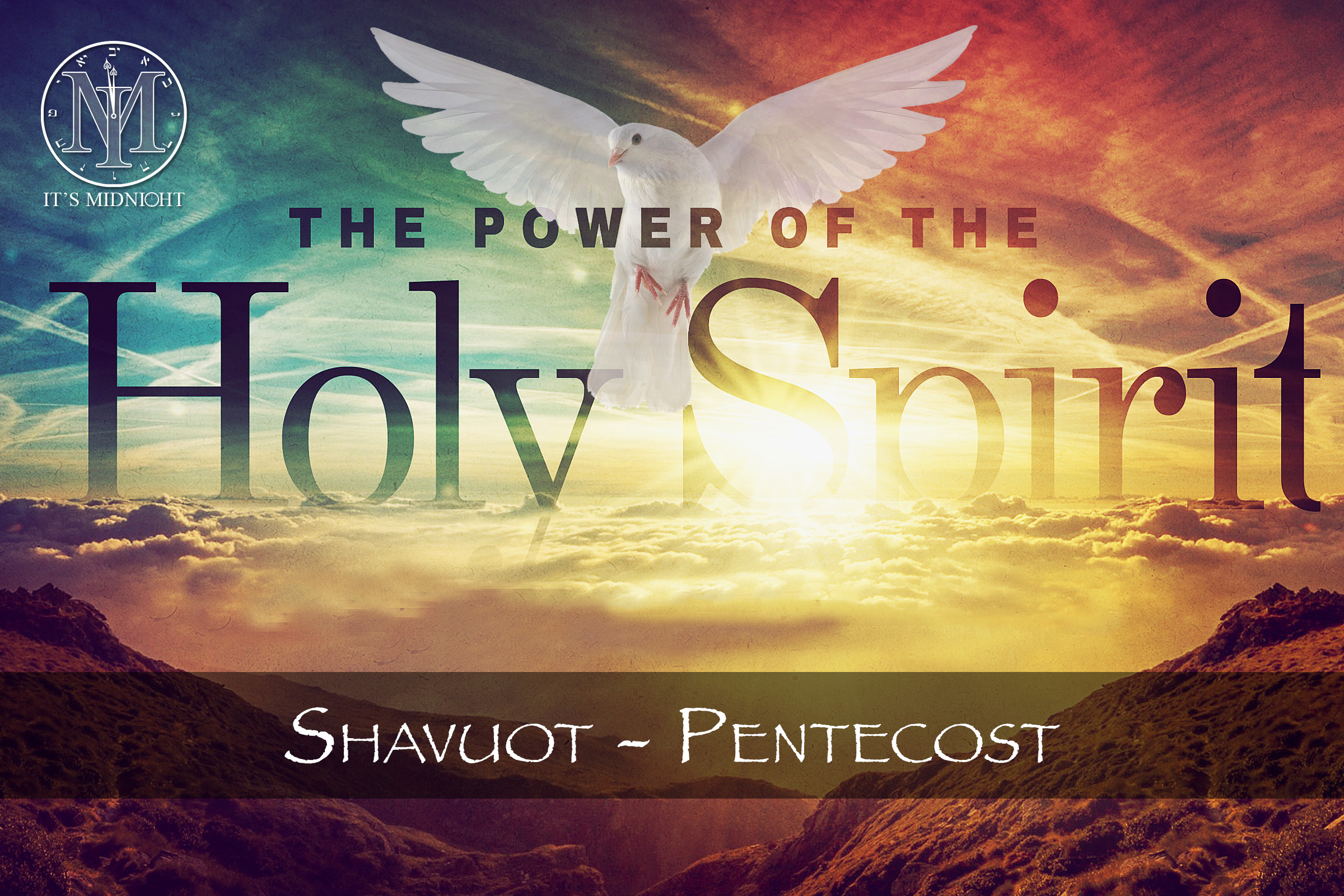
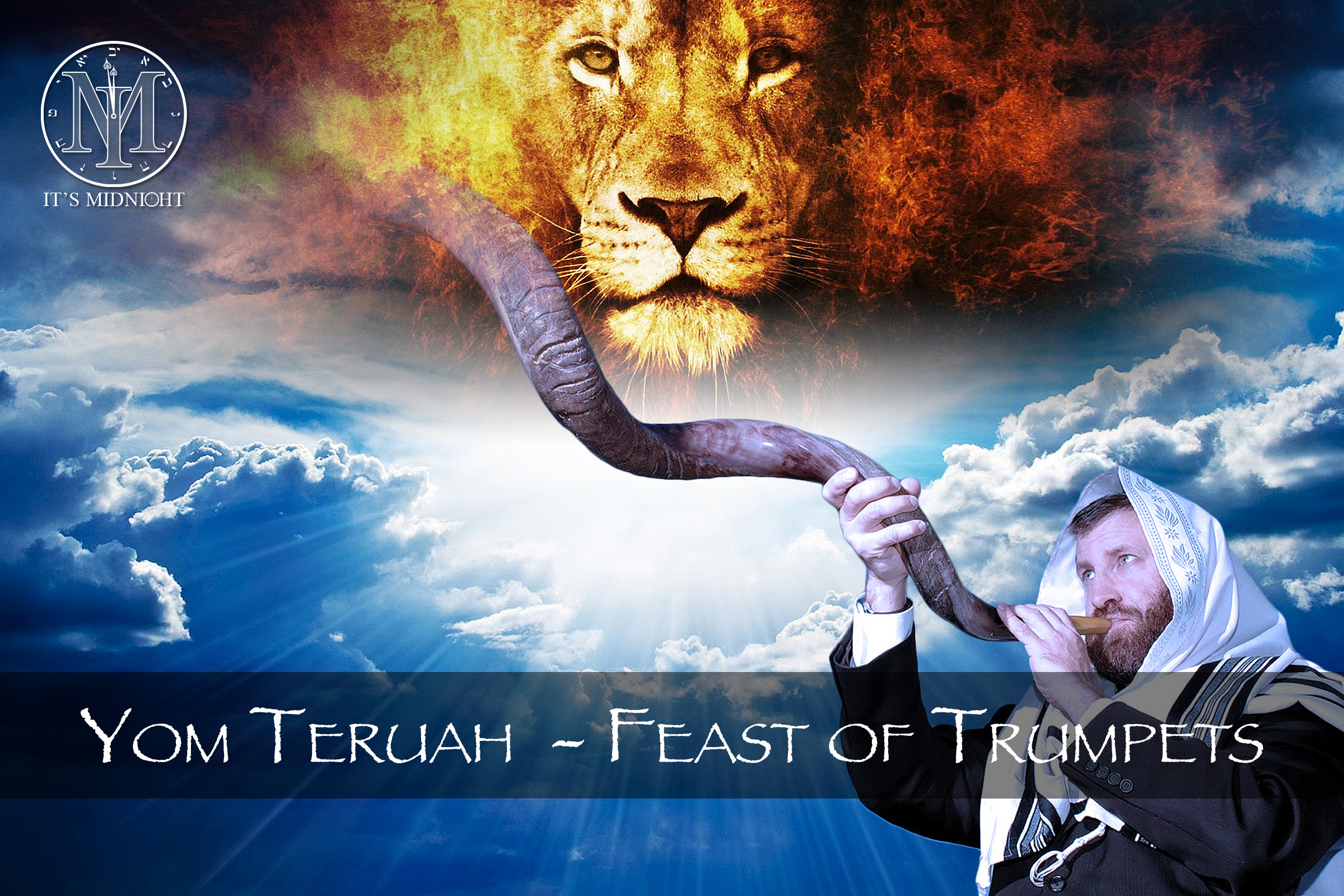
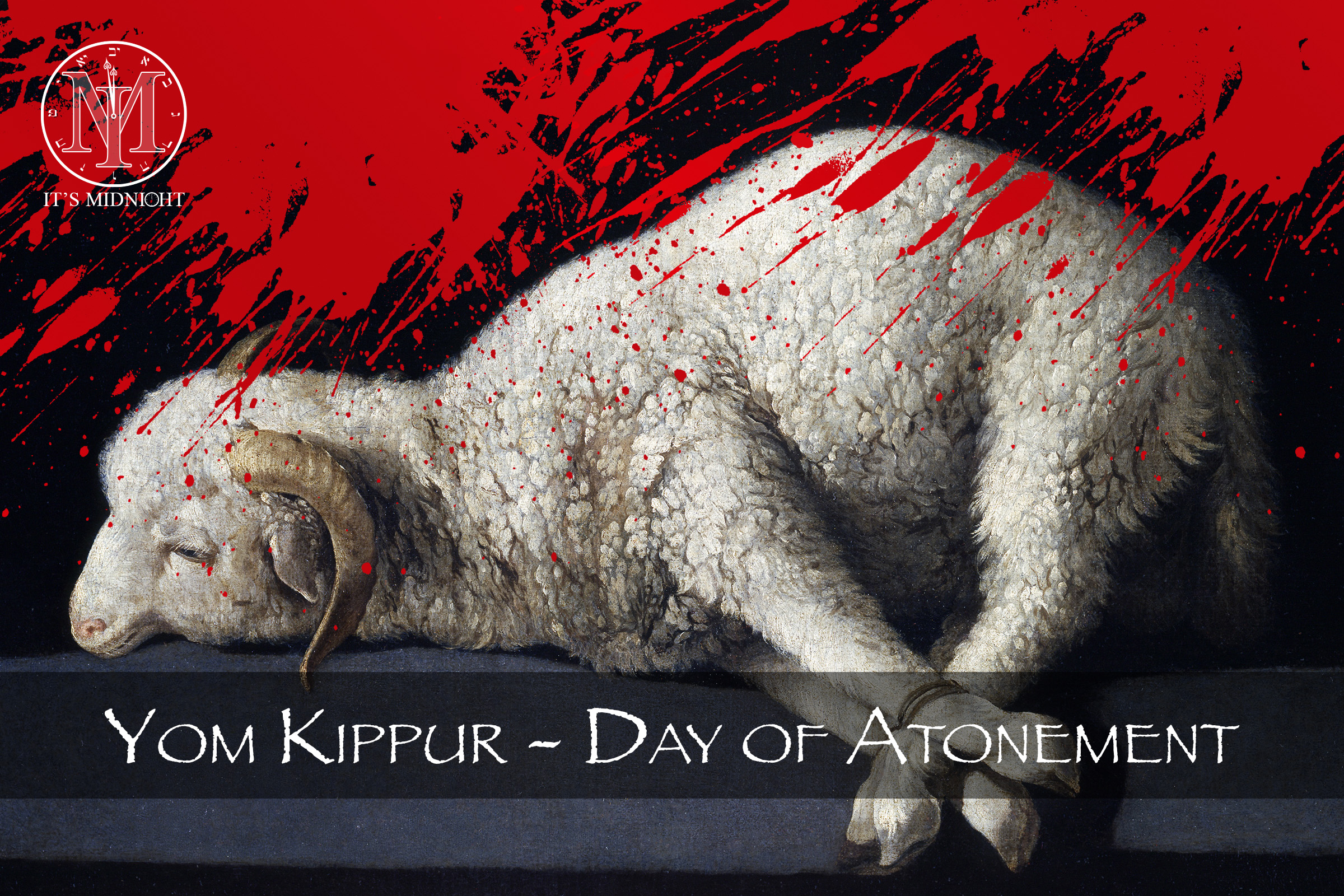
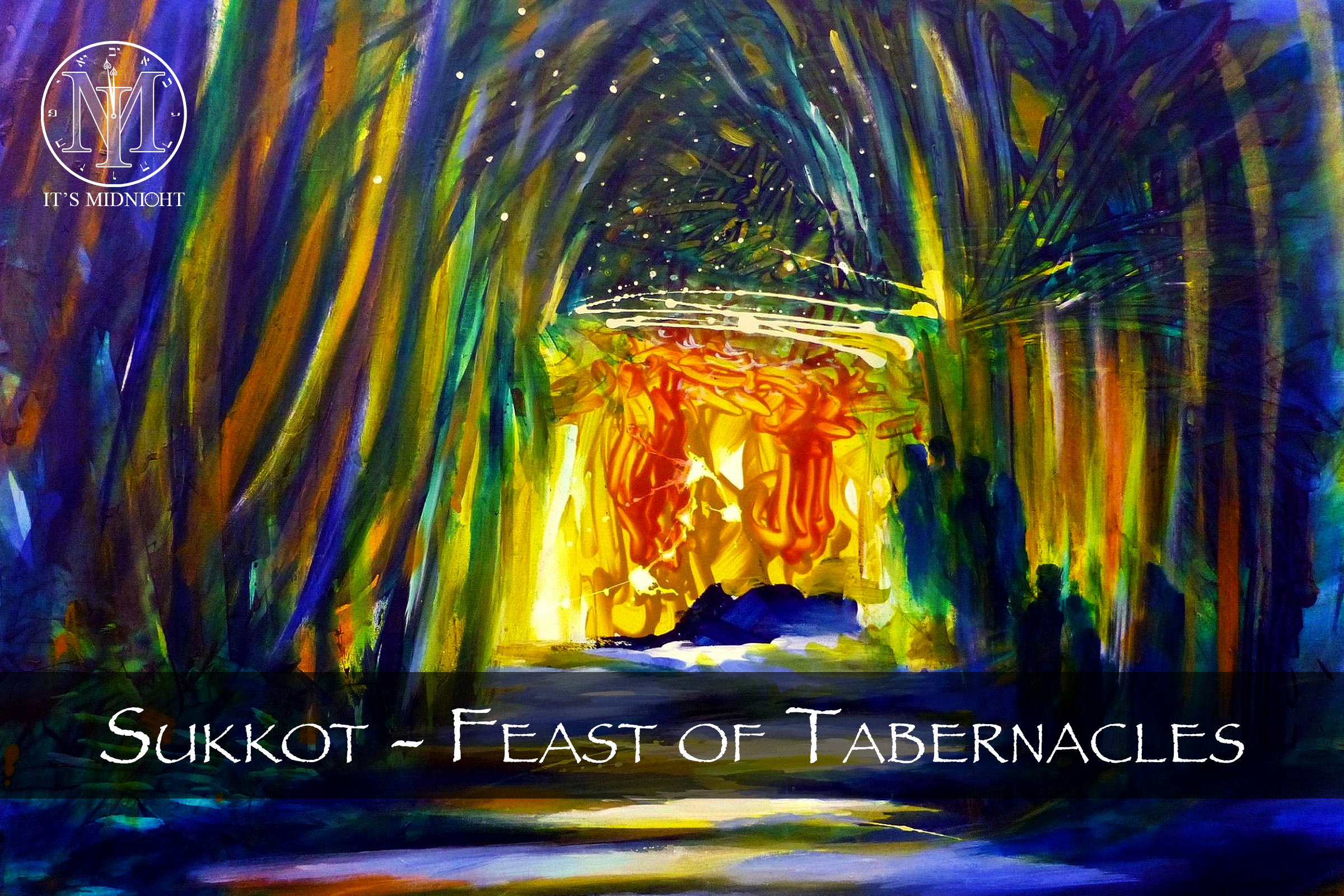
In the month of Tammuz (June/July) Zachariah was serving in the God of Israel’s holy temple. An angelic messenger, Gabriel appeared to him. He proclaimed in the Hebrew language, “… your wife Elizabeth will bear you a son, and you will give him the name John (Luke 1:11,13). Both Zachariah and Elizabeth were well along in years, and Elizabeth was barren (Luke 1:6) “When the days of Zachariah’s priestly service were ended he went back home, and Elizabeth his wife became pregnant, and she kept herself in seclusion for 5 months” (Luke 1:23,24). This advances us to the month of Chislev - (November/December). Now in the sixth month Tevet - (December/January), of Elizabeth’s pregnancy, the angel Gabriel appeared to the chosen Jewish virgin Mary (Miryam), announcing in Hebrew, “behold, you will conceive in your womb and bear a son, and you shall name Him Yahshua (often pronounced Yeshua, Hebrew for salvation). His original Hebrew name Yahshua, means “YAHveh is salvation” - YHVH the Hebrew consonants for the God of Israel’s proclaimed name (see Exodus 3:15) (Luke 1:26,31). Gabriel also brought Mary the news that her relative Elizabeth had conceived a son in her old age, and was now in her sixth month of pregnancy (Luke 1:36). In about three months, in the month of Aviv - (March/April), her baby would be born.
When Gabriel brought the exciting news to Mary about her relative Elizabeth, “without delay she hurried to the town in the hill country of Judah” where they lived (Luke 1:39). When Mary entered Elizabeth’s presence, John leapt for joy in his mother’s womb. At that moment Elizabeth exclaimed to Mary, “Among all women, you are most blessed! And how blessed is the child in your womb” (Luke 1:41). This proclamation and John's leaping for joy, affirmed to Mary that she was already with child. These events took place in the cold wintry month of Tevet - (December/January).
(The Course number and Clan Leaders are taken from I Chronicles 24:7-18, followed by the Biblical and corresponding Roman months. The Biblical months can be found in the following Scriptures; Exodus 13:4; I Kings 6:1,38; I Kings 8:2; Ester 2:16; 8:9; Ezra 6:15; Nehemiah 11; 2:1; 6:15; Zechariah 1:7.)
"She will bear a Son; and you shall call His name Yahshua, for He will save His people from their sins.” The long awaited Messiah of Israel and Savior of the world arrived in the month of Tishri - (September/October), the seventh month of the God of Israel’s Biblical calendar
- Matthew 1:20-21, Leviticus 23:39 -
Mary was born of the tribe of Judah, and of the lineage of King David. As a young obedient Jewess, she was betrothed to Joseph also of the tribe of Judah (Luke 2:4, 1:32; Psalms 132:11; Romans 1:3). When Joseph found Mary to be with child he had difficulty accepting her miraculous story (Matthew 1:18-19). The Holy One of Israel intervened by again sending the angel Gabriel, this time to speak to Joseph in a dream. The angelic messenger said, “do not be afraid to take Mary as your wife; for the Child who has been conceived in her is of the Holy Spirit. She will bear a Son; and you shall call His name Yahshua, for He will save His people from their sins” (Matthew 1:20-21). The long awaited Messiah of Israel and Savior of the world arrived in the month of Tishri - (September/October), the seventh month of the God of Israel’s Biblical calendar (Leviticus 23). The autumn month of Tishri was especially highlighted, it is a time of the concluding three holy feasts on the biblical calendar. The seventh, and final holy day, is the Feast of Tabernacles (Sukkot), also called the Feast of Booths. Long before His birth, Isaiah prophesied, “A child will be born to us, a son will be given to us; And the government will rest on His shoulders; And His name will be called Wonderful Counselor, Mighty God, Eternal Father, Prince of Peace” (Leviticus 23:36; John 7:37, Isaiah 9: 6). The God of Israel “sent His only begotten Son” to become the sacrificial “Passover Lamb” (John 3:16). The Son of God, the Almighty Conqueror came in bodily form as the “Son of Man” to rescue His people from sin and eternal death. In infinite loving mercy Yahveh [the Lord] put on robes of salvation, namely a human body, and came to earth to first save His people Israel and included the Gentiles who, along with believing Israel, would be set free from bondage to Satan and their sin nature (Romans 1:16, John 4:22, Matthew 15:24). Although Scripture regarding the exact day of Messiah’s birth is not expressly stated, we do know from deductive study of Scripture, that Yahshua (Jesus) was born in the month of Tishri. We can also infer that Yahshua was most likely born on the Feast of Tabernacles/Booths, Tishri 15 (September/October).
The book of Revelation concludes with the ultimate fulfillment of the Feast of Tabernacles, “Behold, the tabernacle of God is among men, and He will dwell among them, and they shall be His people, and God Himself will be among them."
- Revelation 21:3 -
This last great biblical feast is also called the Feast of Great Rejoicing, which expresses this outpouring of joy from heaven to earth. We read that the mighty angels rejoiced, and the shepherds rejoiced, and the angels announced to the shepherds the Good News, “that will bring great joy (rejoicing) to all people” (Luke 2:10). The reality that Yahveh the Holy One of Israel came to earth as Yahshua (Jesus) to dwell (tabernacle) among men, is the reason for our utmost faith and infinite rejoicing. Yahshua (Jesus) willingly left the splendor and glory of His heavenly kingdom to indwell the earthly body that was divinely prepared for Him (see Hebrews 10:5). The Feast of Tabernacles speaks of His incarnation: “And the Word became flesh, and dwelt (tabernacled) among us and we beheld His glory, glory as of an only begotten of the Father, full of grace and truth” (John 1:14). The celebration of the Feast of Tabernacles is also in remembrance of Yahveh’s (the Lord’s) provision of shelter for Israel during her wilderness journeys. Messiah’s promised blessings of a place prepared for us in His messianic kingdom will be fulfilled when the redeemed righteous remnant, of Jews and Gentiles, dwell in His eternal presence forever (John 14:3). The book of Revelation concludes with the ultimate fulfillment of the Feast of Tabernacles. We read John's words of inspiration and eternal hope, “I saw the holy city, new Jerusalem, coming down out of heaven from God, made ready as a bride adorned for her husband. And I heard a loud voice from the throne, saying, “Behold, the tabernacle of God is among men, and He will dwell among them, and they shall be His people, and God Himself will be among them. And He who sits on the throne said, “Behold, I am making all things new.” And He said, “Write, for these words are faithful and true.” … I am … the beginning [His birth] and the end [He lives eternally with His righteous redeemed remnant forever in the Father’s holy eternal kingdom] … He who overcomes [the flesh, the sin nature, and the worldly temptations] will inherit these things, and I will be their God and they will be My sons and daughters” (see Revelation 21:3-7).
Understanding the biblical calendar, the Almighty’s appointed times, brings us a more vivid portrait of our Savior’s birth, death, and resurrection and magnifies His walk on earth leaving us an example to follow in His footsteps. The biblical calendar is a gift for both Jews and believing Gentiles, that together, they will know, love, and worship the God of Israel and His Son, the Jewish Messiah, “in Spirit and in truth” (John 4:24). The Feast of Tabernacles (Sukkot) is so important, we read in the Scripture it will be eternally celebrated in the millennial kingdom. It is written, “Any who are left of all the Gentile nations”, who survived the war against Jerusalem and the all conquering King of kings will have to appear before Yahveh, the Mighty One of Israel “from year to year to worship the King and celebrate the Feast of Tabernacles (Booths) (see Zechariah 14:16-18). Let us begin on earth to recognize and celebrate this eternal season, when the Holy One came to “dwell among men” in its proper biblical time on His Father’s calendar, which will be the only everlasting calendar!
Pagan Roots vs Biblical Truth
We are at the end of the age and what Satan has deceptively sown in the harvest of pure biblical truth is being magnified to those who have spiritual discernment, accompanied with a “hunger and thirst for righteousness”.
Want to Learn More About the Feasts?
- Redefining the Feasts of Israel Through the Ten Commandments -
Want to learn even more about the Biblical Feasts of Israel? Check out Terrye G. Seedman's book "Redefining the Feasts of Israel Through the Ten Commandments." The Holy Days pivot around the Ten Commandments, these were appointed times to meet with Him that would help them to walk by His spirit’s leading in these Commandments. Indeed, there would be no feasts if it was not for the Ten Commandments and the penalty of sin for not upholding them and there would be no need of Messiah. The Ten Commandments point us to Him and YAHshua the schoolmaster points us to the truth so we can walk in a way worthy of everything that He has taught us to be. “Not of the letter but of the Spirit. For the letter kills, but the Spirit gives life.” (2 Corinthians 3:6) This book unlocks truths from Yahveh's divine Ten Commandments to redefine the true meaning and fulfillment of the holy Feasts of Israel. Simply, the divinely appointed times, the feast days, pivot around the blood on the altar of sacrifice—on the mercy seat, for the forgiveness of sin and sin points us back to the Commandments. Therefore every feast is exalting the Commandments of YAHveh, exalting our Lamb who came and died because we can’t uphold the Commandments without His help. They are inextricably linked. You can’t separate the feasts from the Commandments and you cannot separate the Lamb of God who is the ultimate fulfillment of the holy temple, priesthood, and the sacrificial system’s substitutionary sacrifice for our sin nature. Learn all of this and more in this powerful book about Yahveh's divine commandments and holy feasts.
Explore Feasts of Israel Teachings
Videos
Watch life-changing Feast of Israel video teachings from acclaimed author and speaker Terrye G. Seedman.
Audio Messages
Listen to powerful audio teachings on the Feasts of Israel, covering their connection to YAHshua, holiness, and the Torah.
The Spring Feasts
Learn about the Spring Feasts like never before while uncovering the truth and fulfillment of our salvation in Messiah.
The Fall Feasts
Uncover new meaning around the Fall Feasts, including Old & New Testament truths that call us to be holy to Yahveh.
Passover | Pesach
Uncover the true meaning of Passover, including its divine symbolism, prophetic insights, and Messianic fulfillment.
First Fruits
Dive into the miraculous resurrection of our Savior who was the fulfillment of the third spring feast, the Feast of First Fruits.
Yom Teruah
- The Feast of Trumpets -
Hear YAHveh crying out and blasting His shofar through this feast - asking all to hear His voice calling us up higher.
Yom Kippur
- The Day of Atonement -
See Messiah's fulfillment as our High Priest, making atonement for us that our names may be written in the Book of Life.
